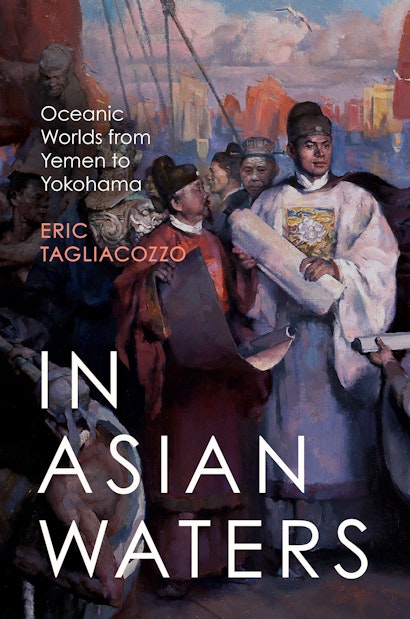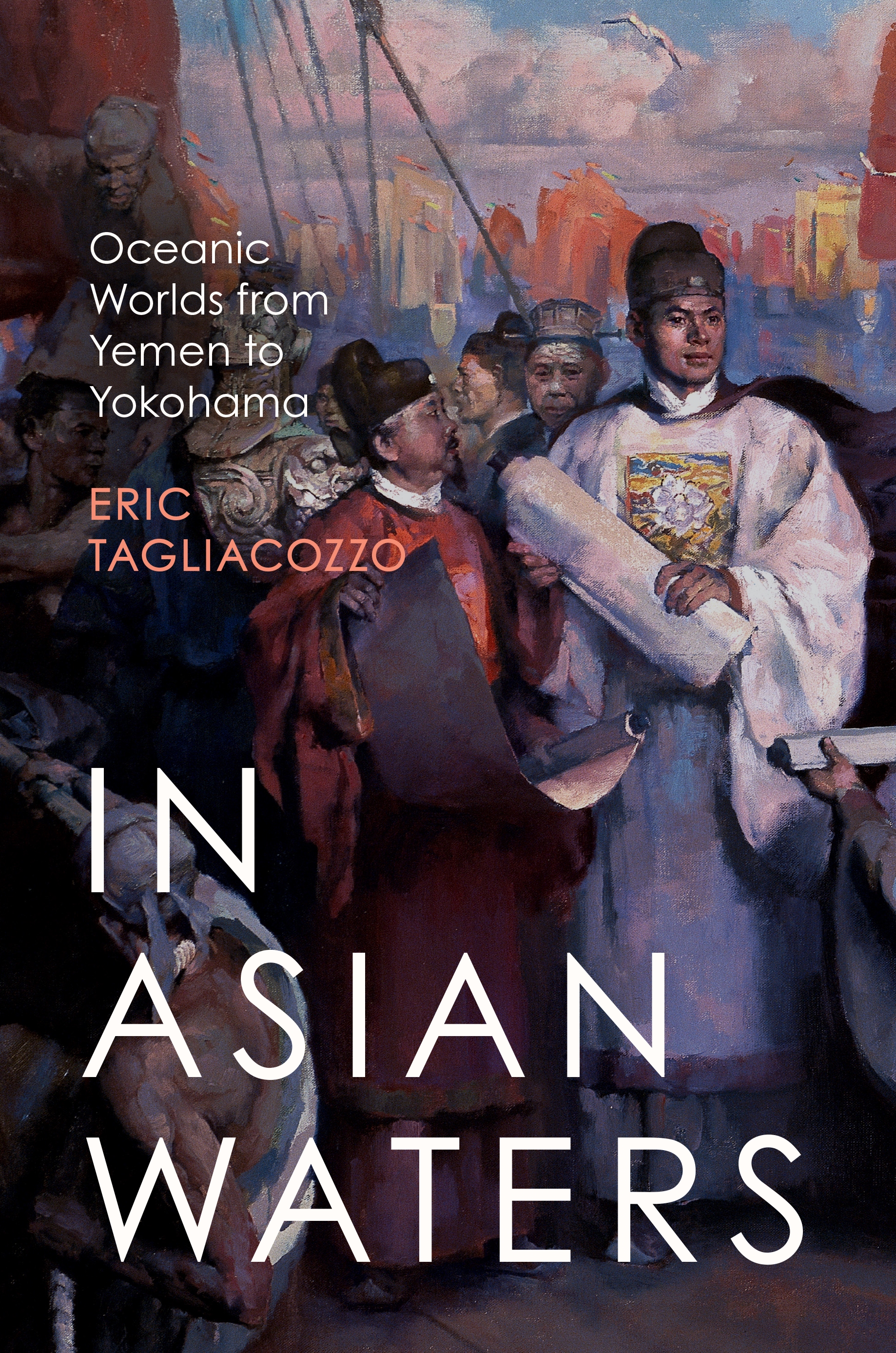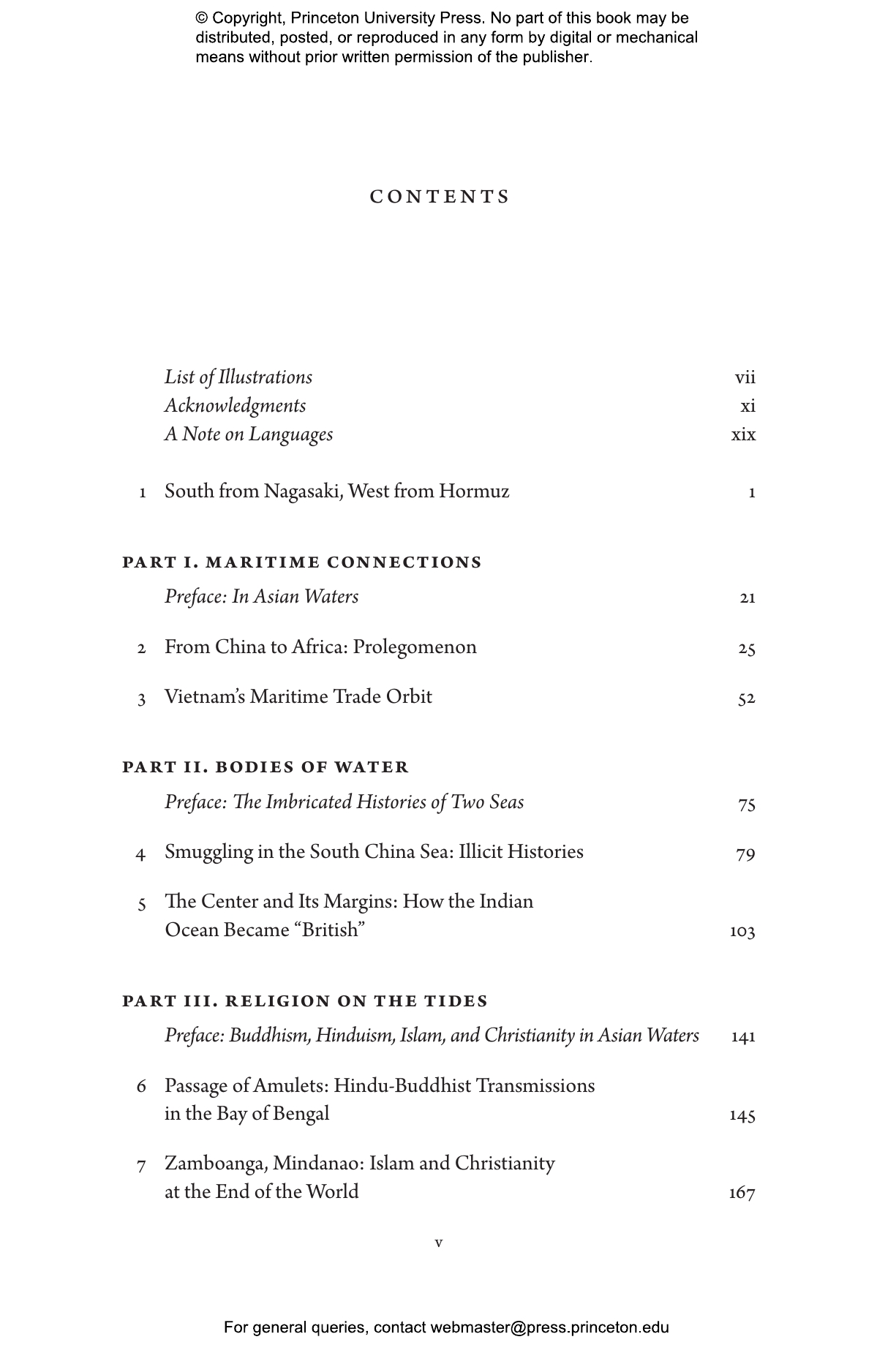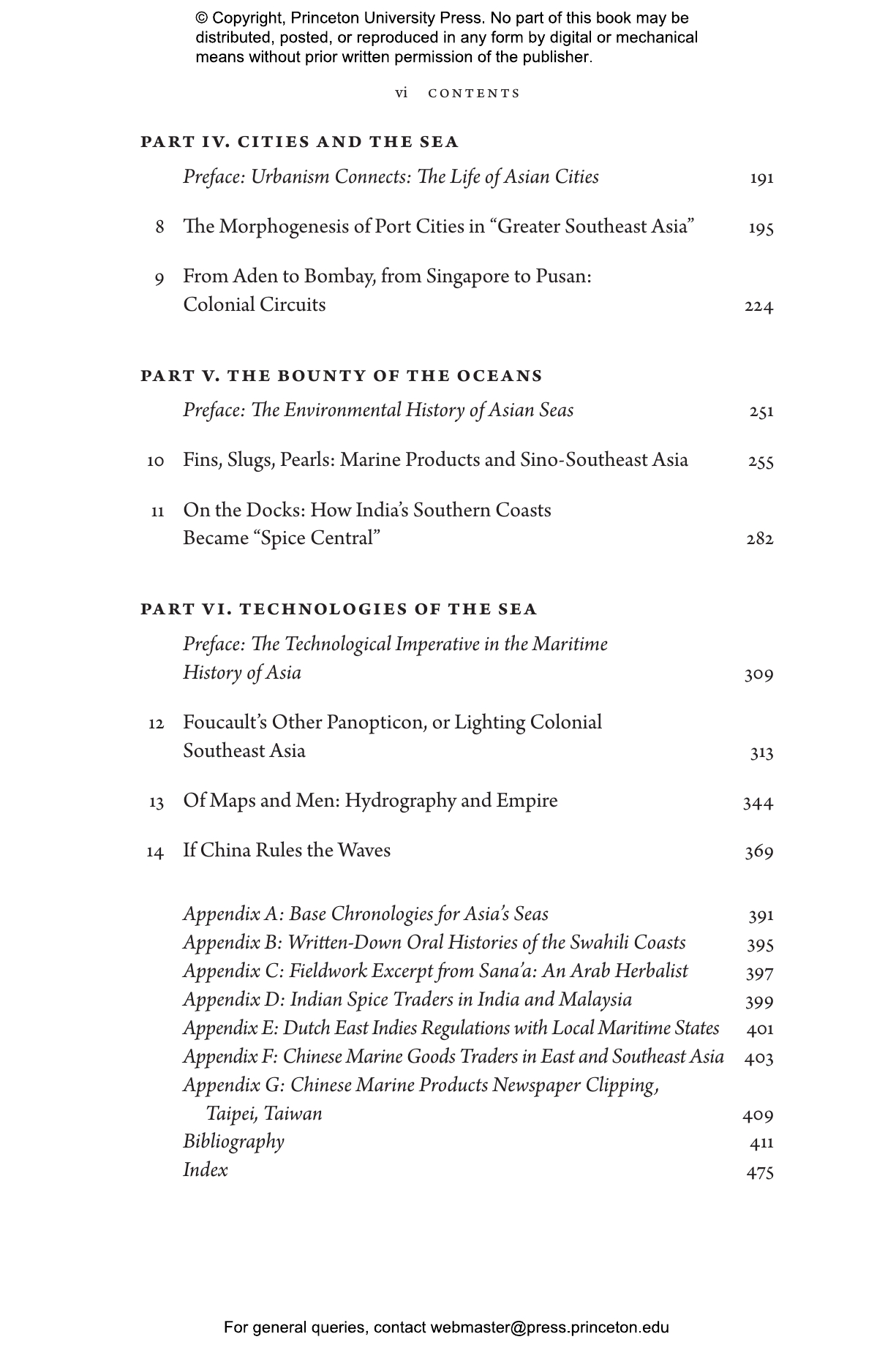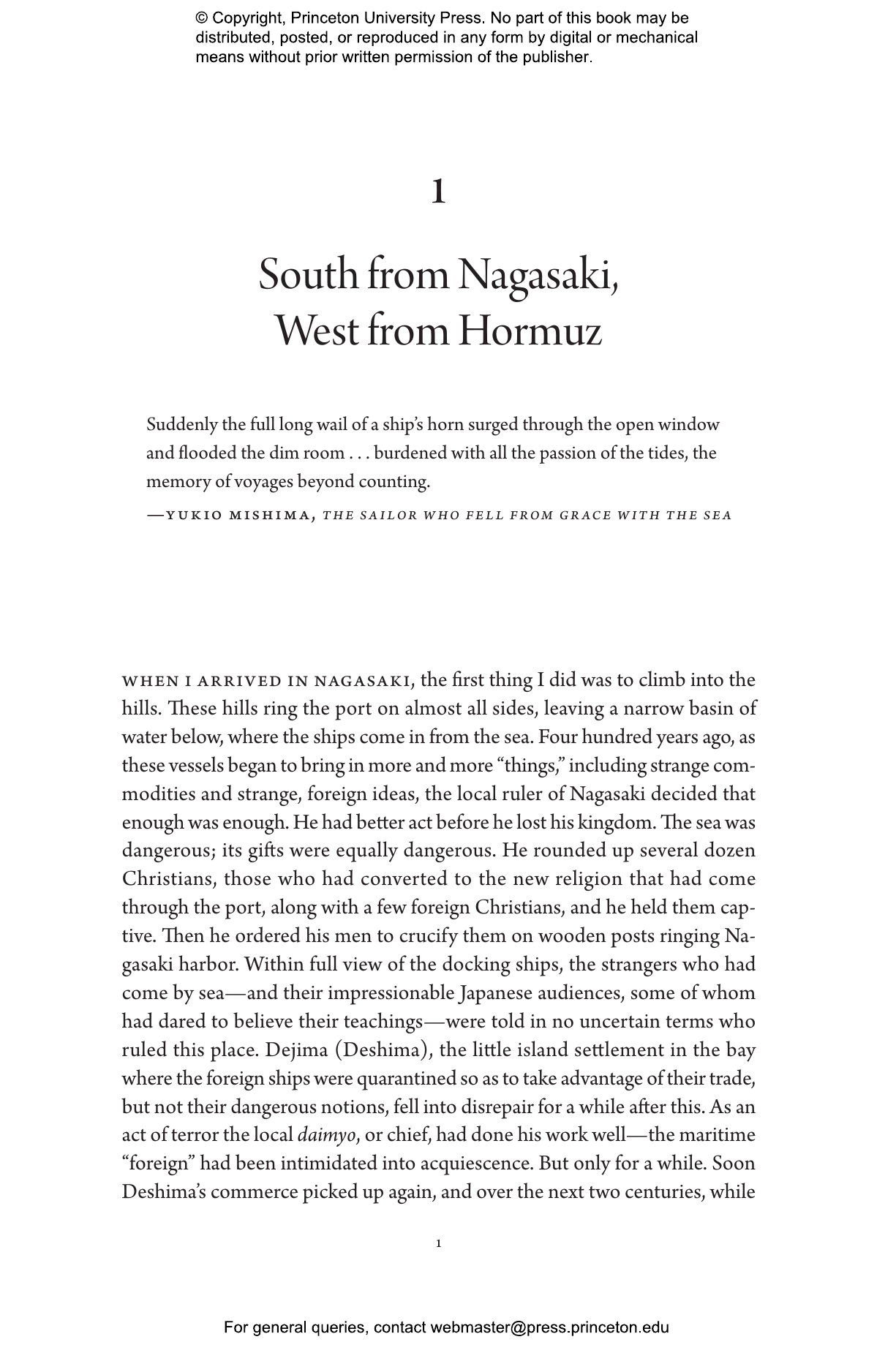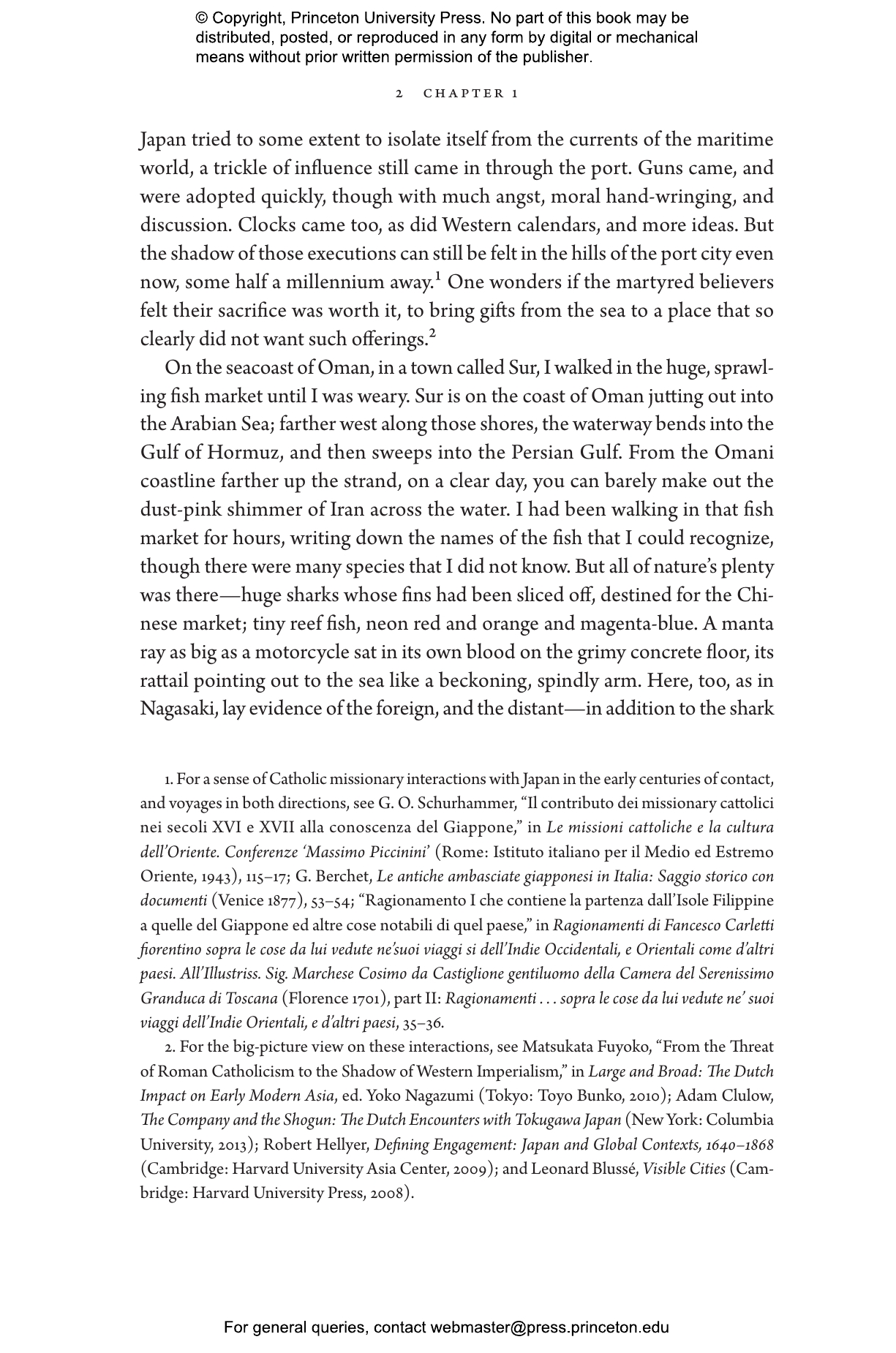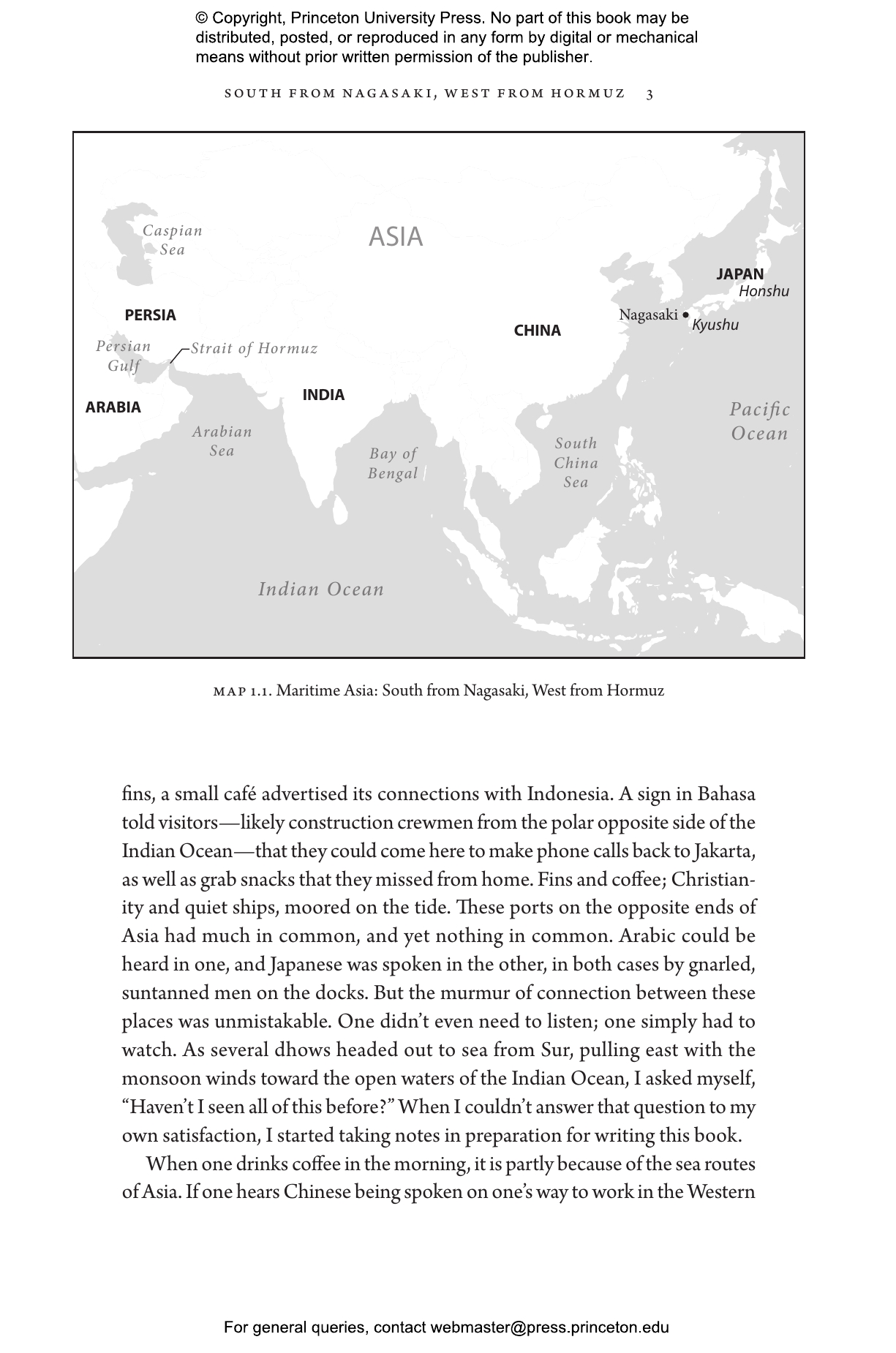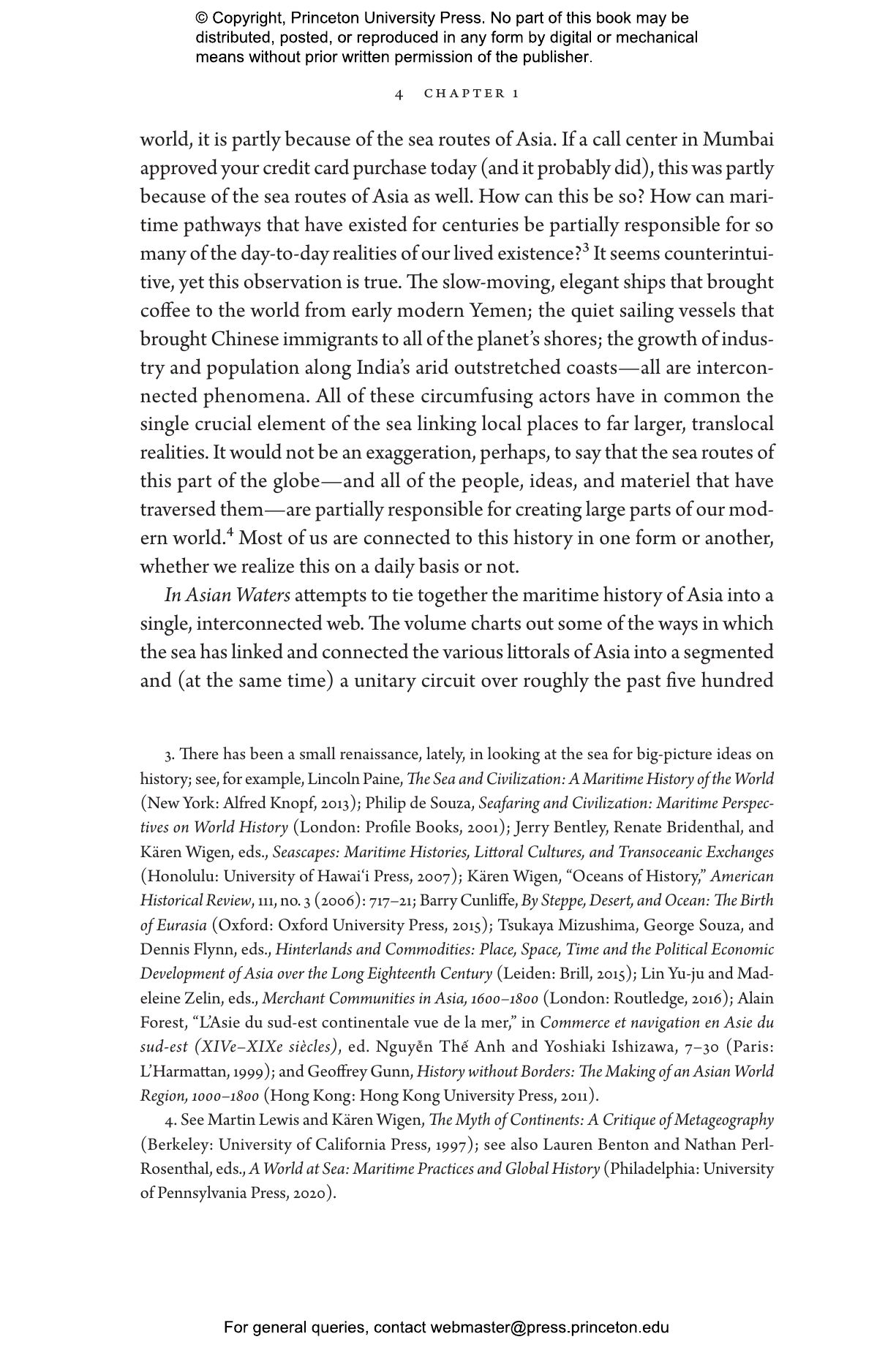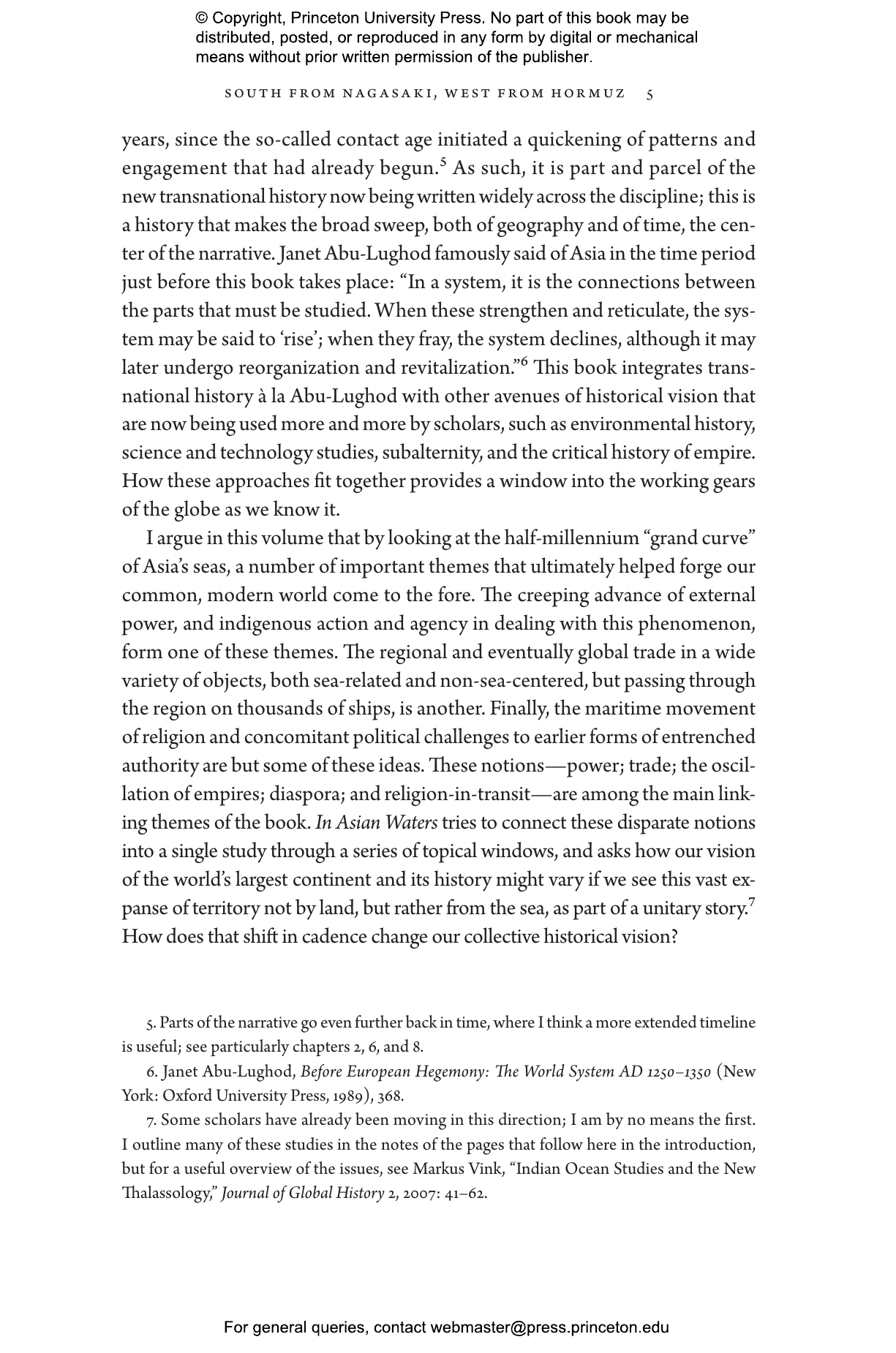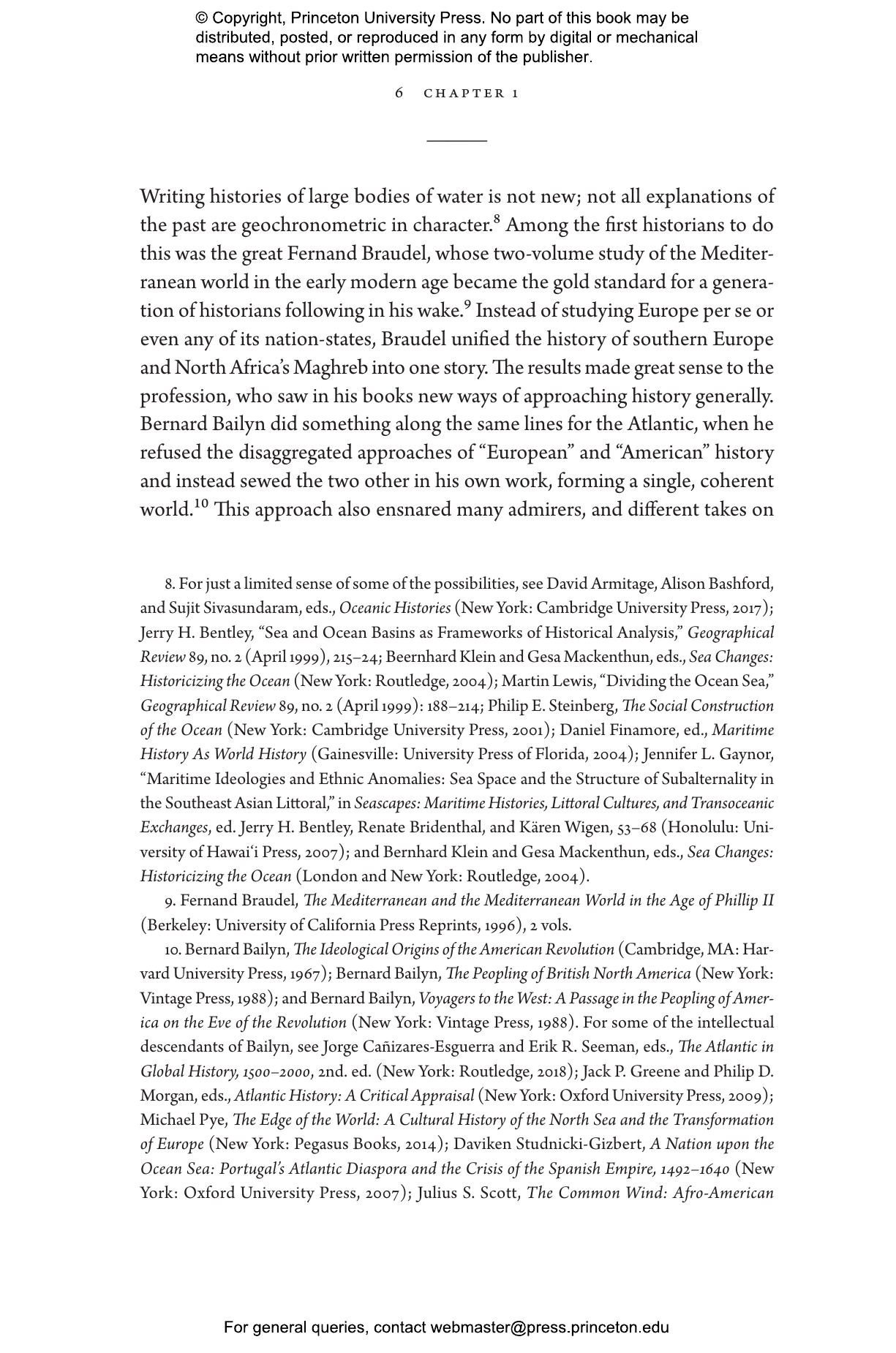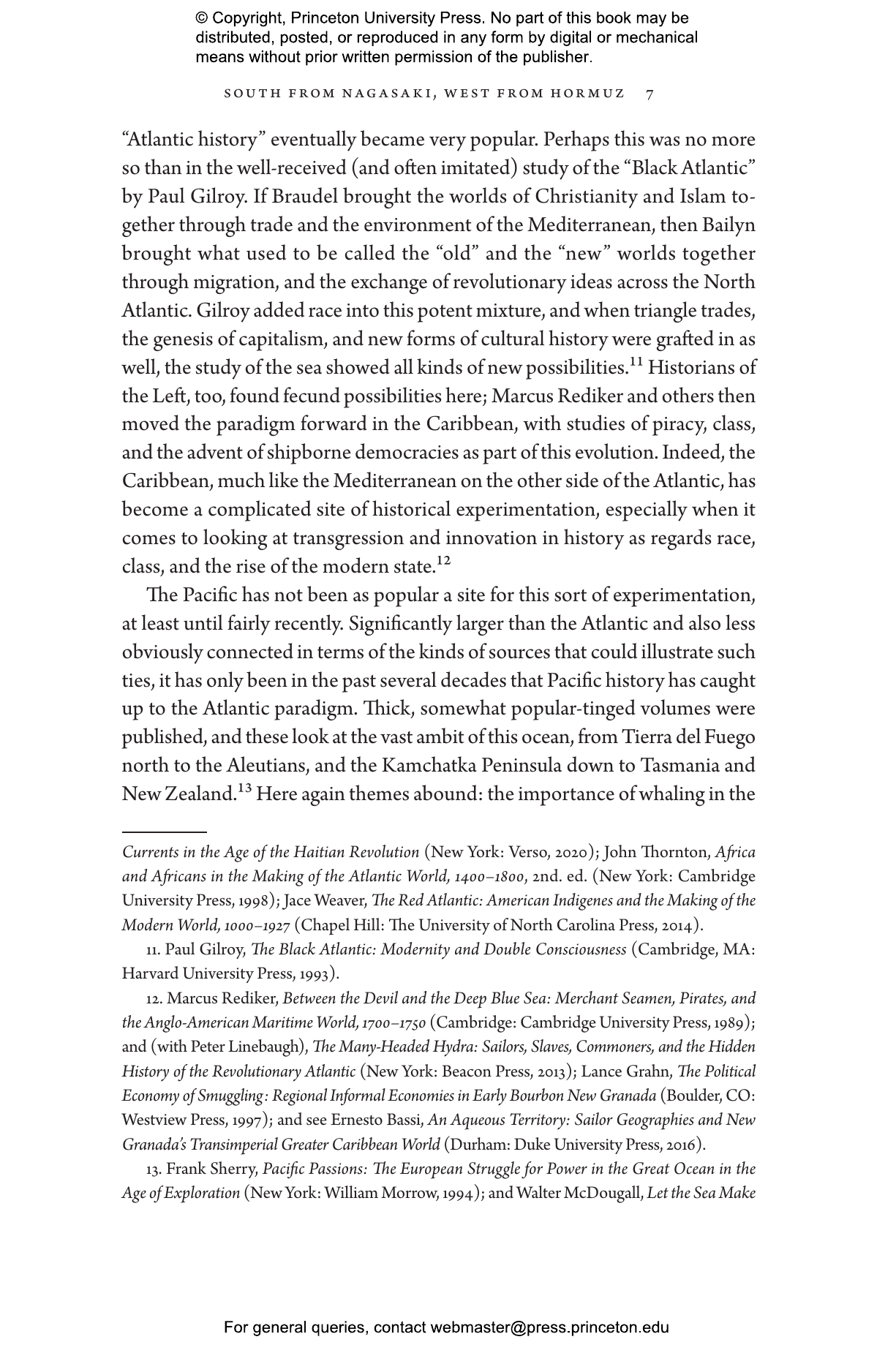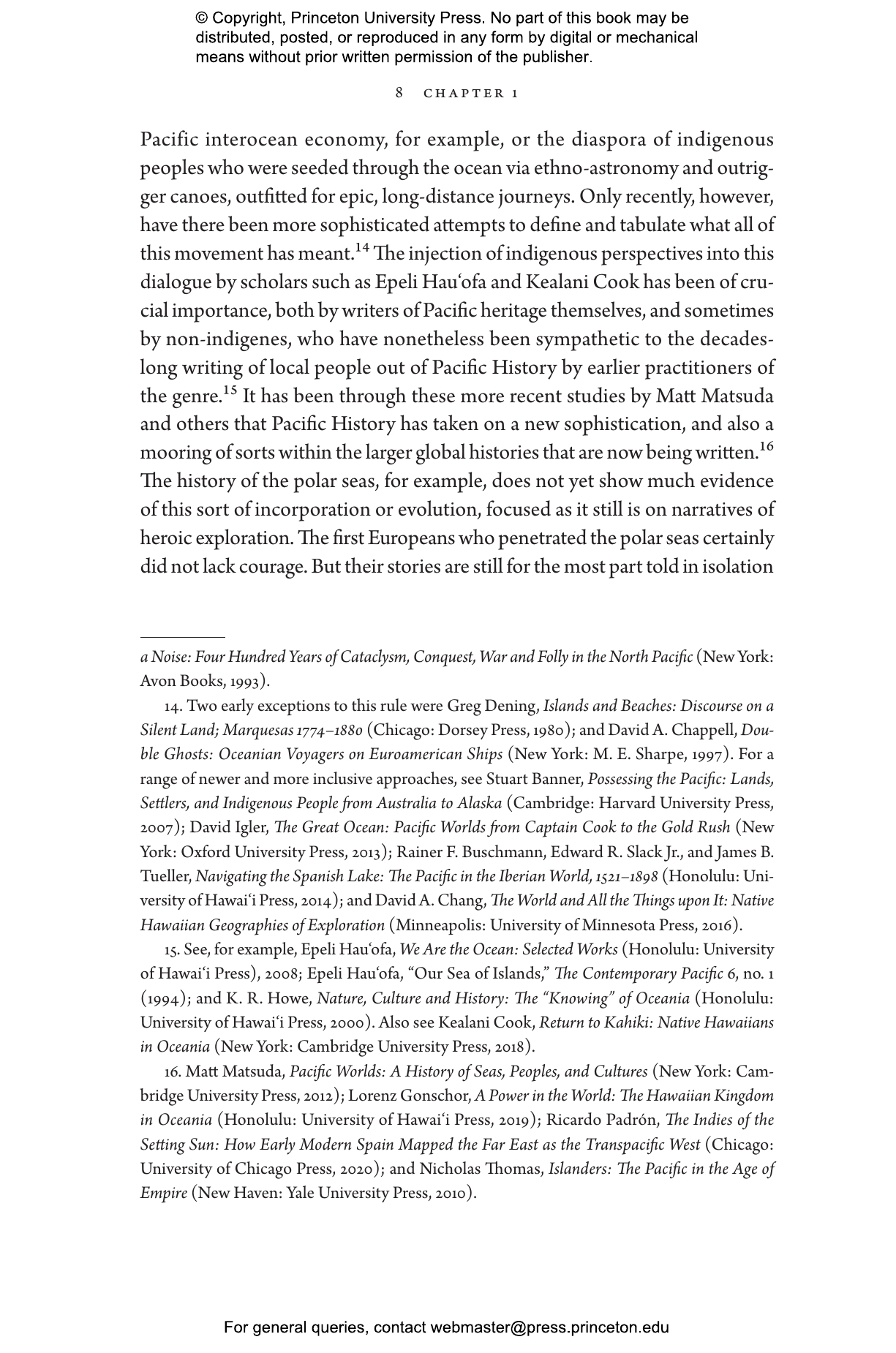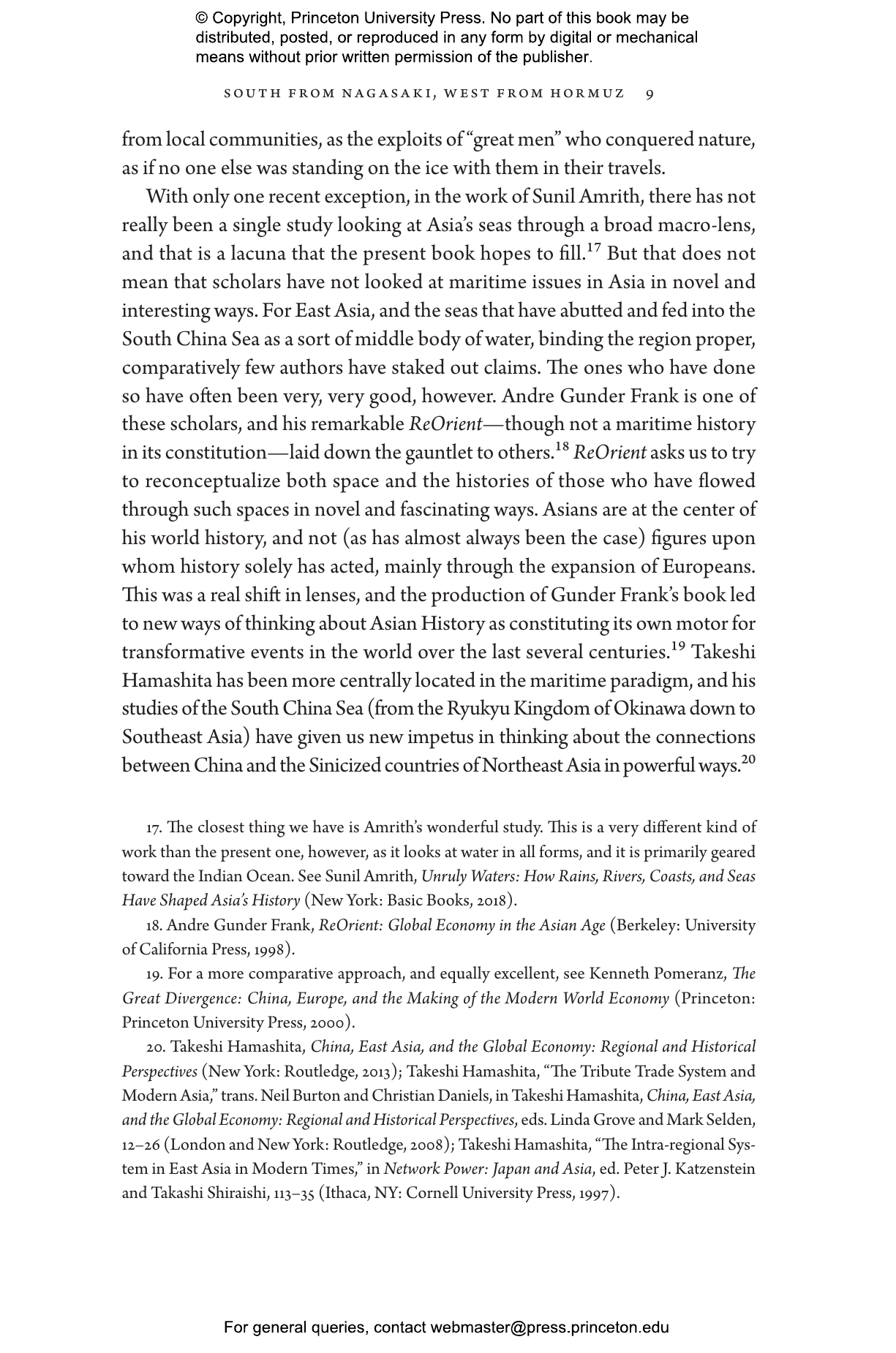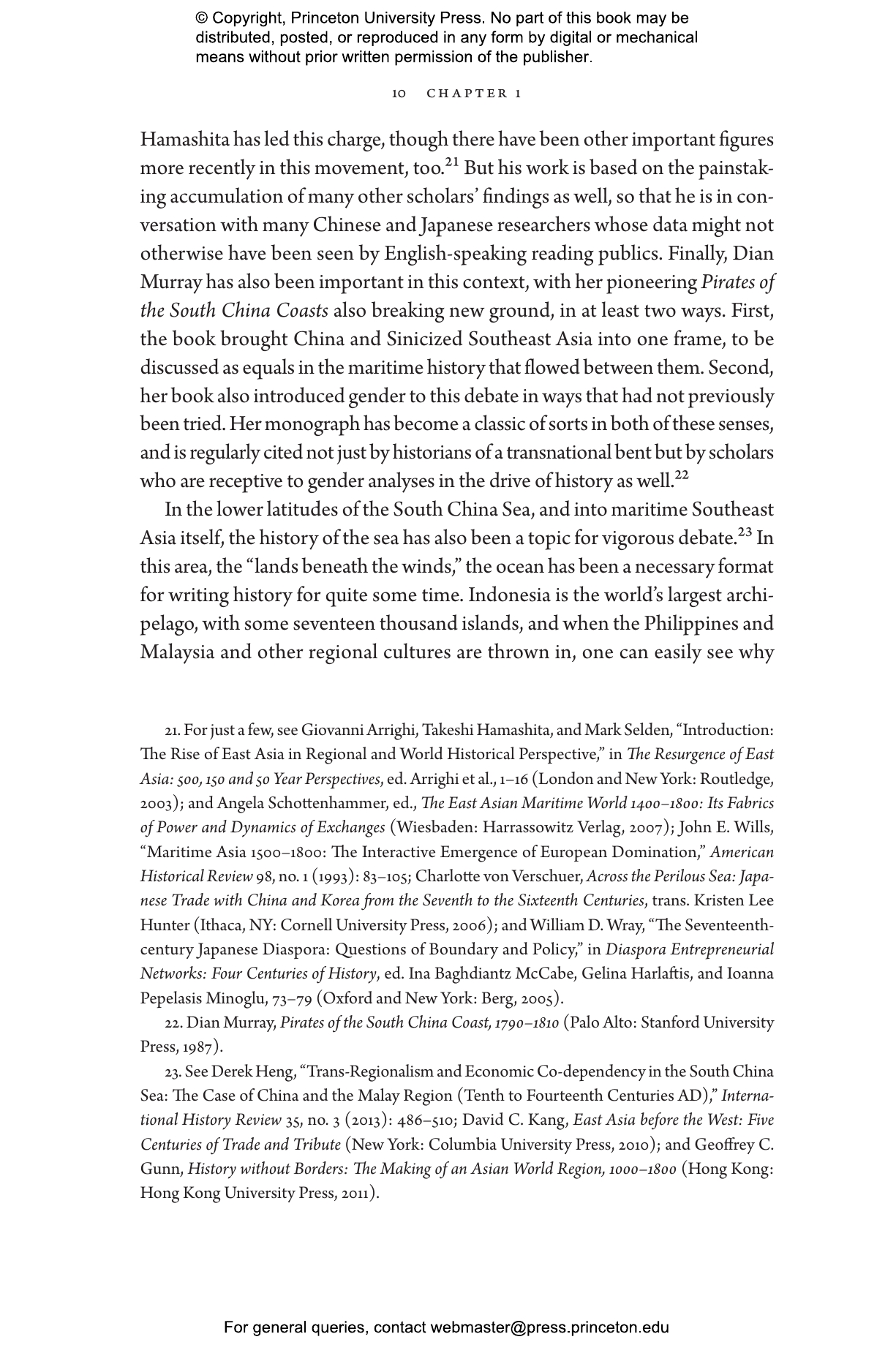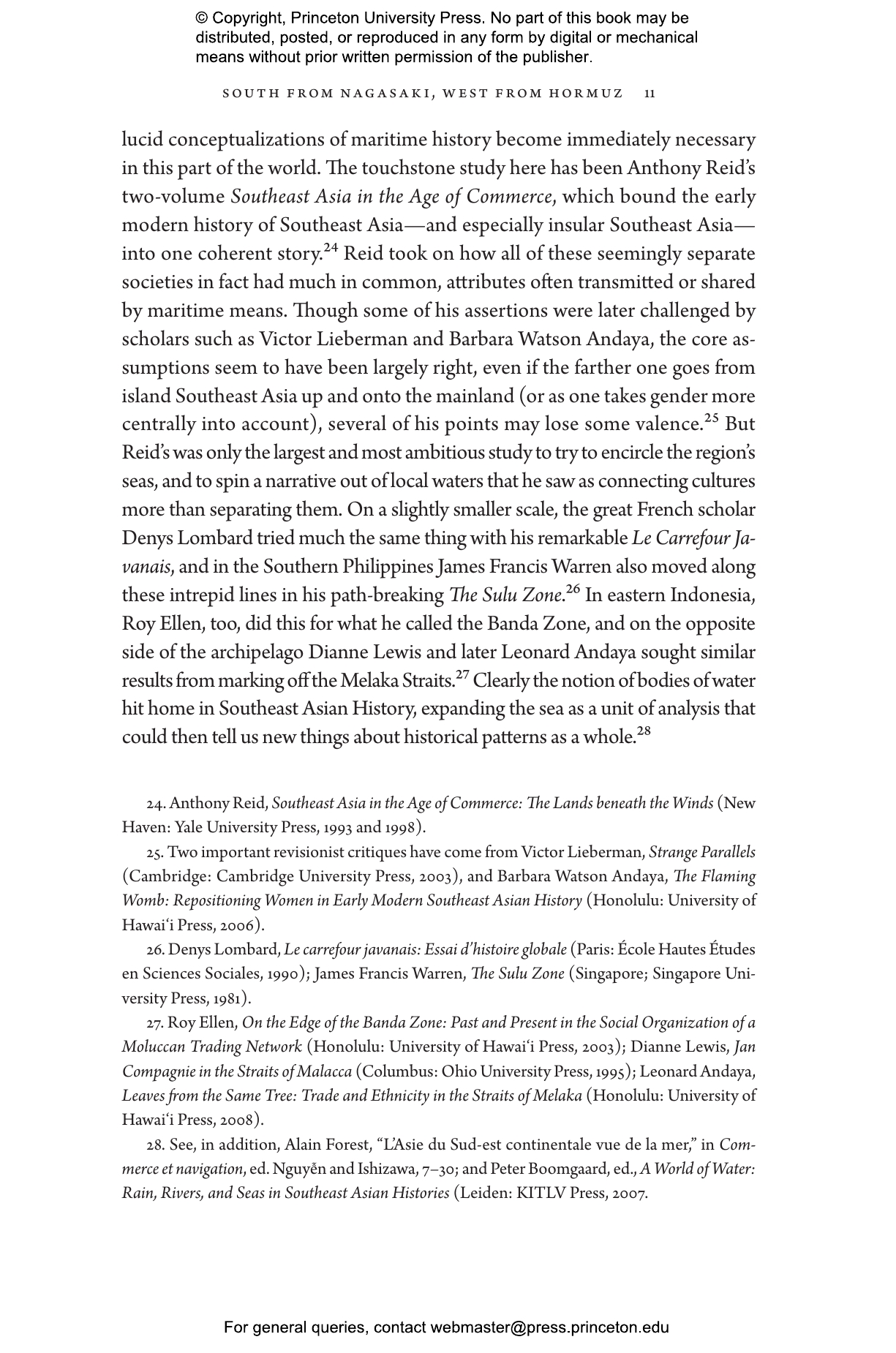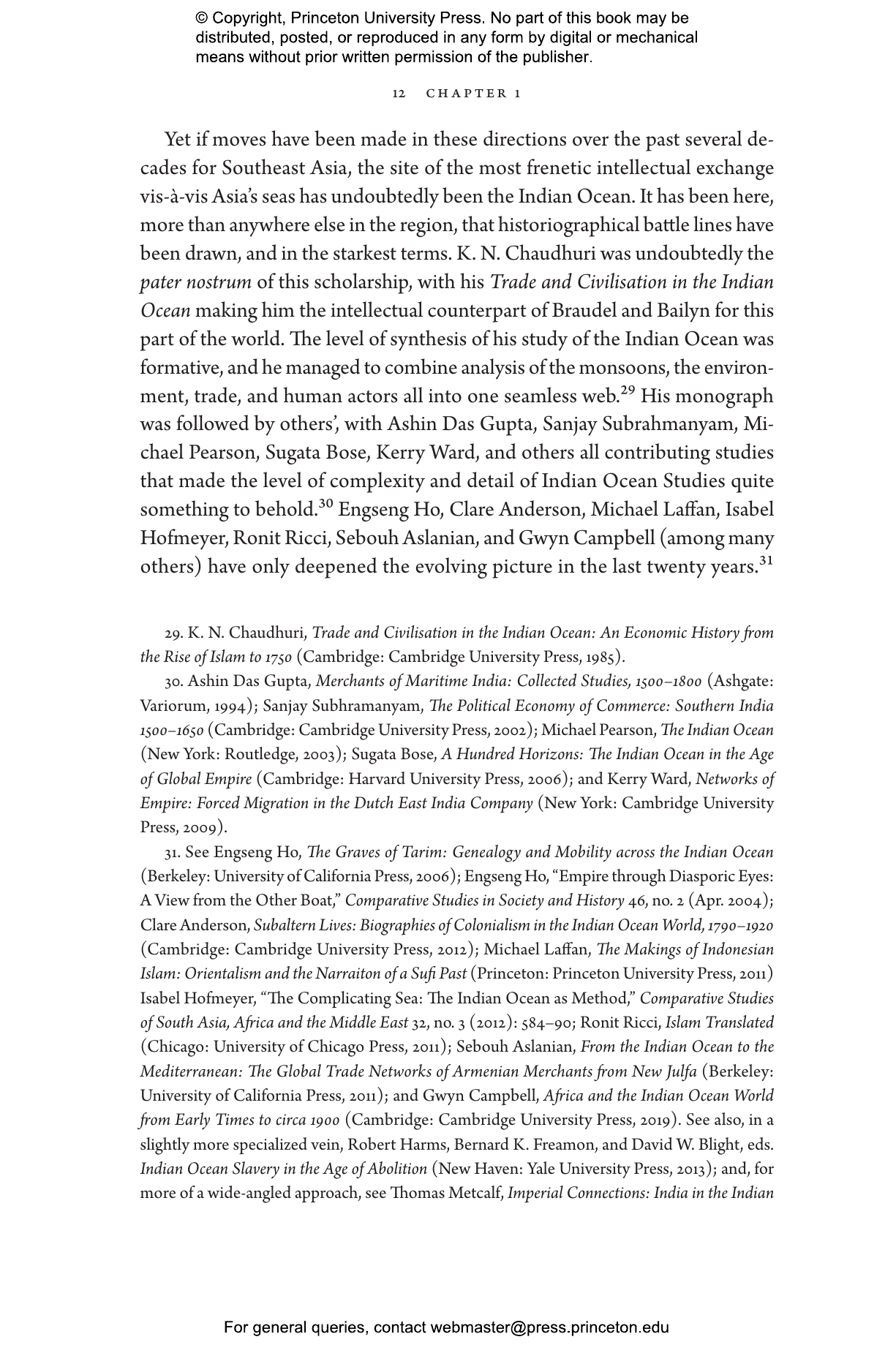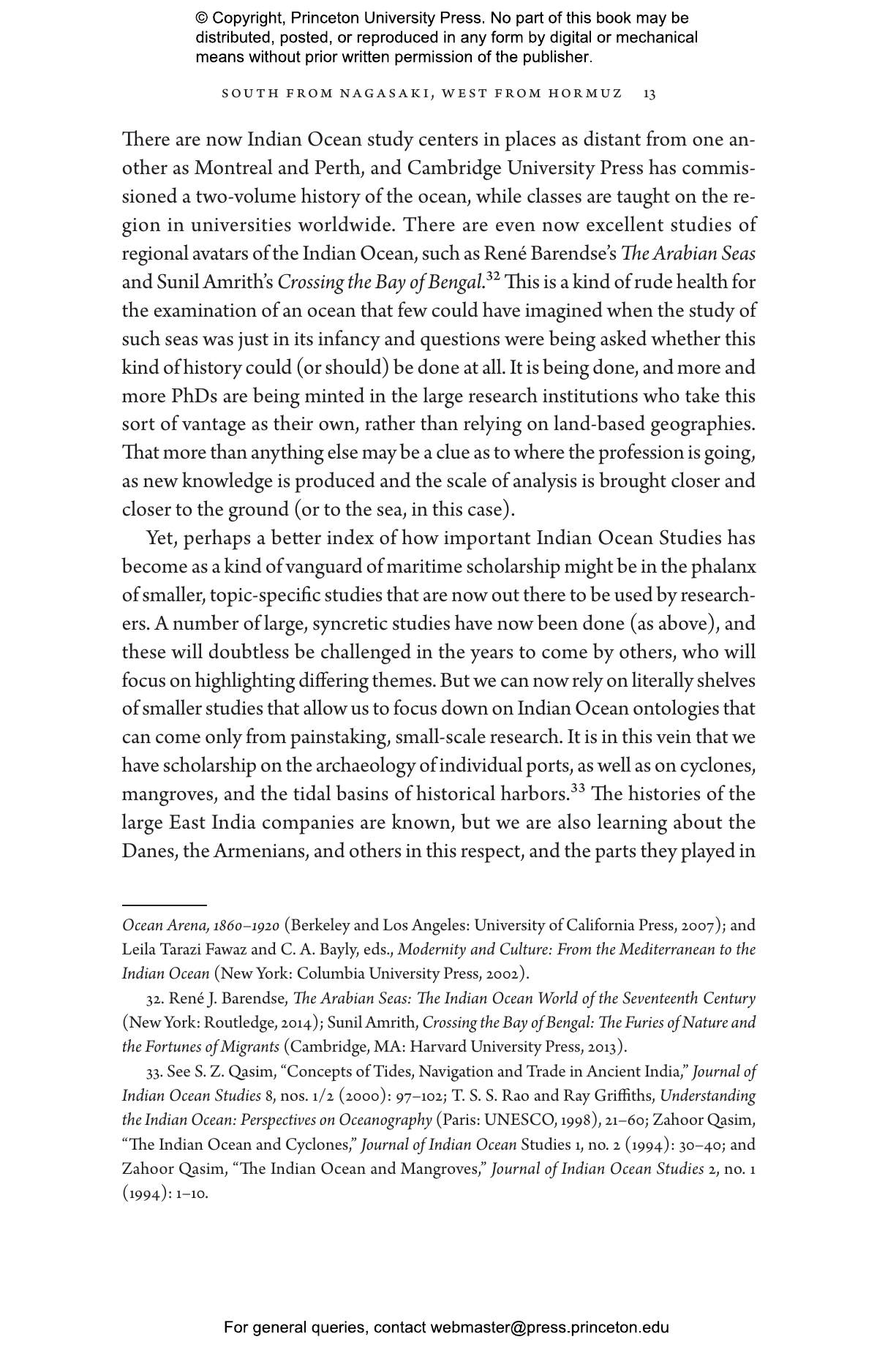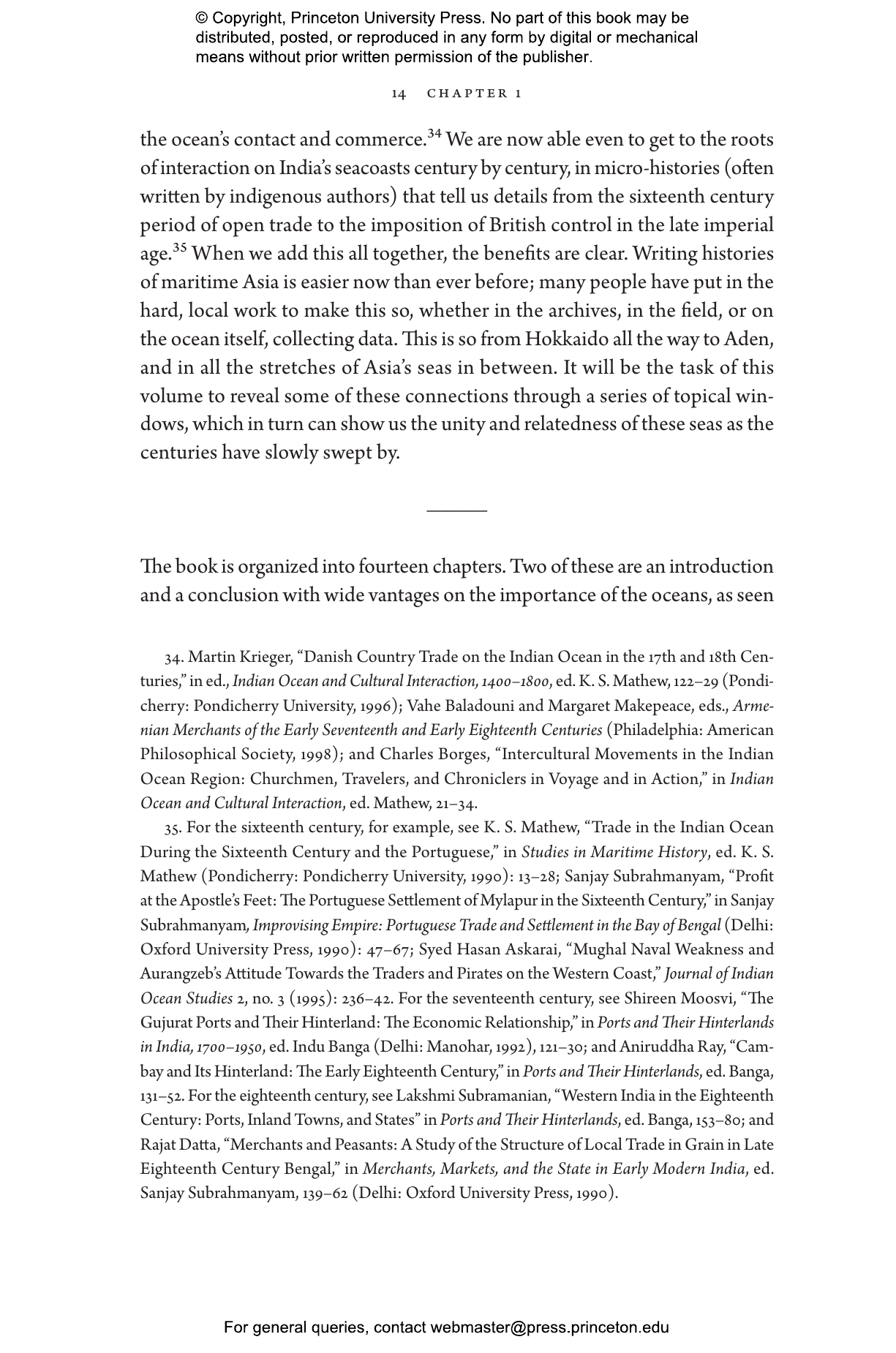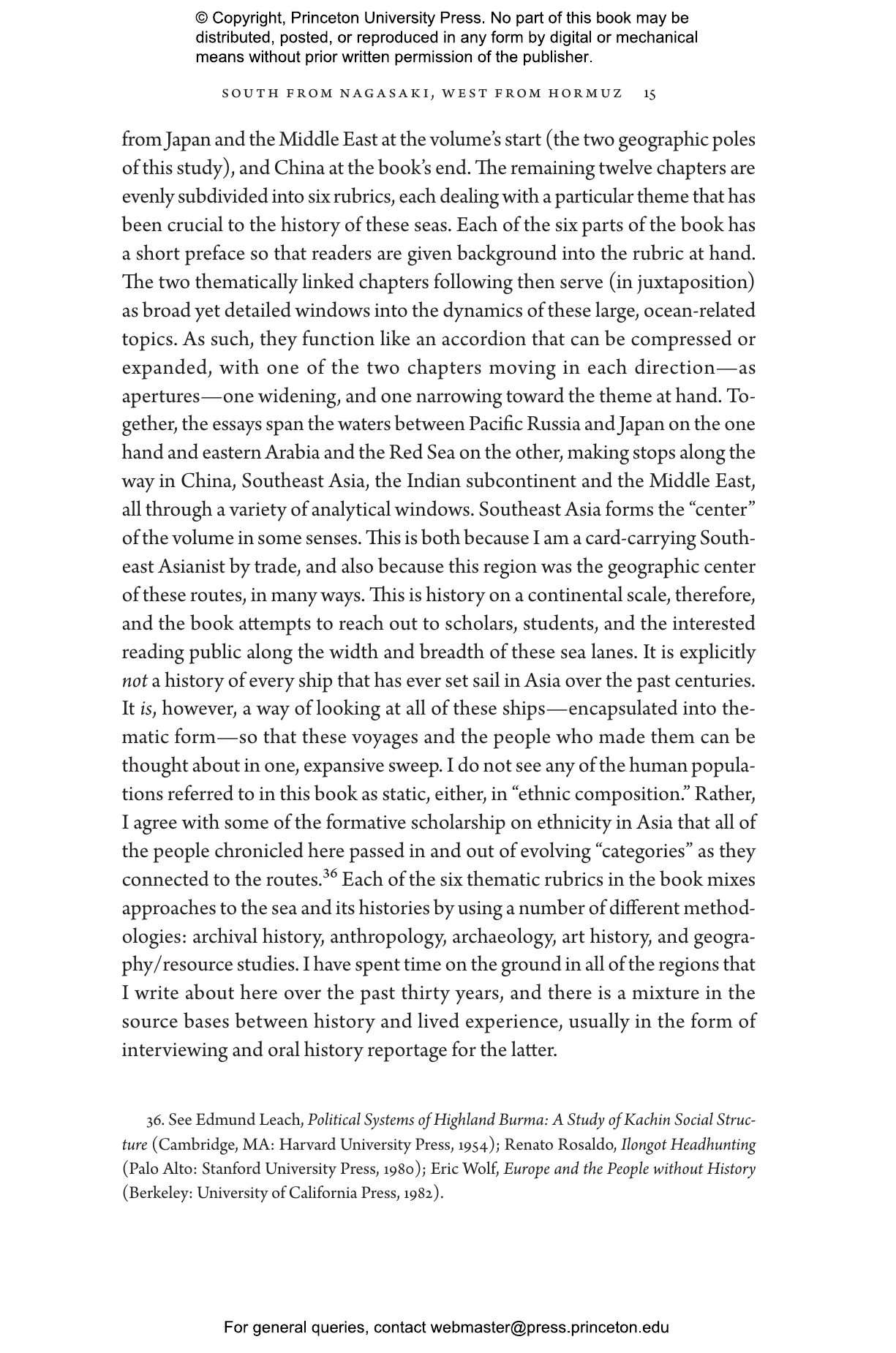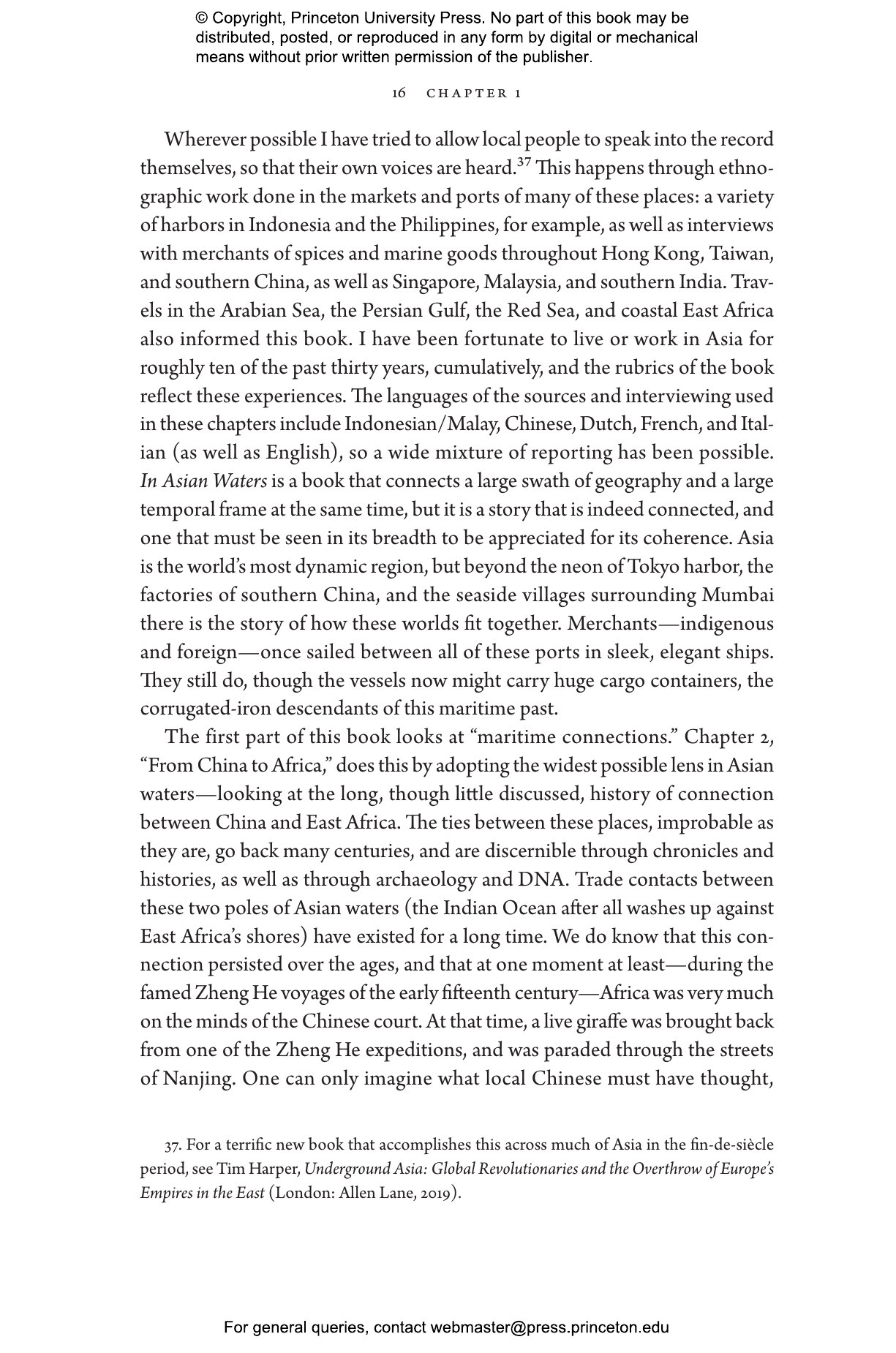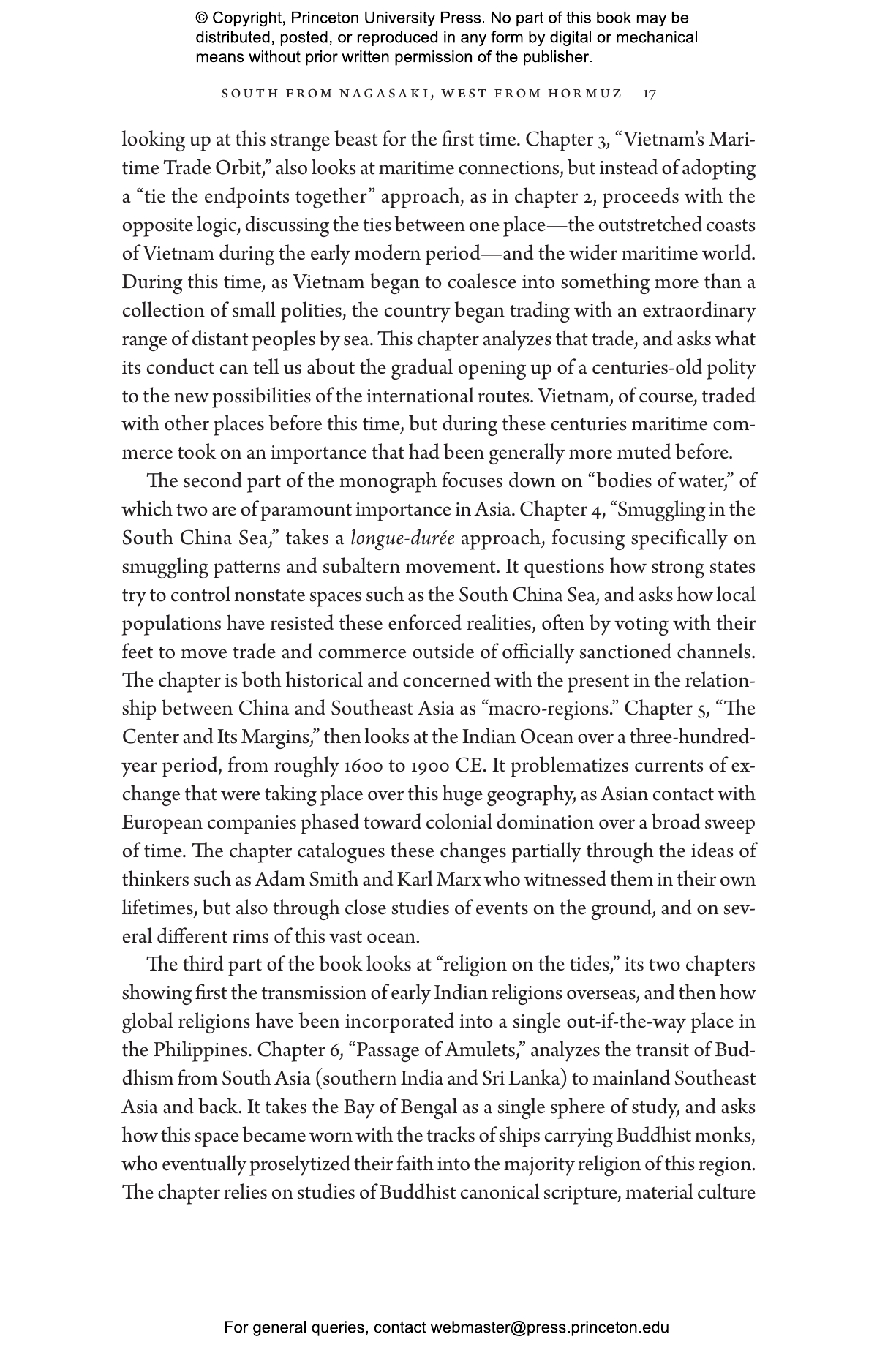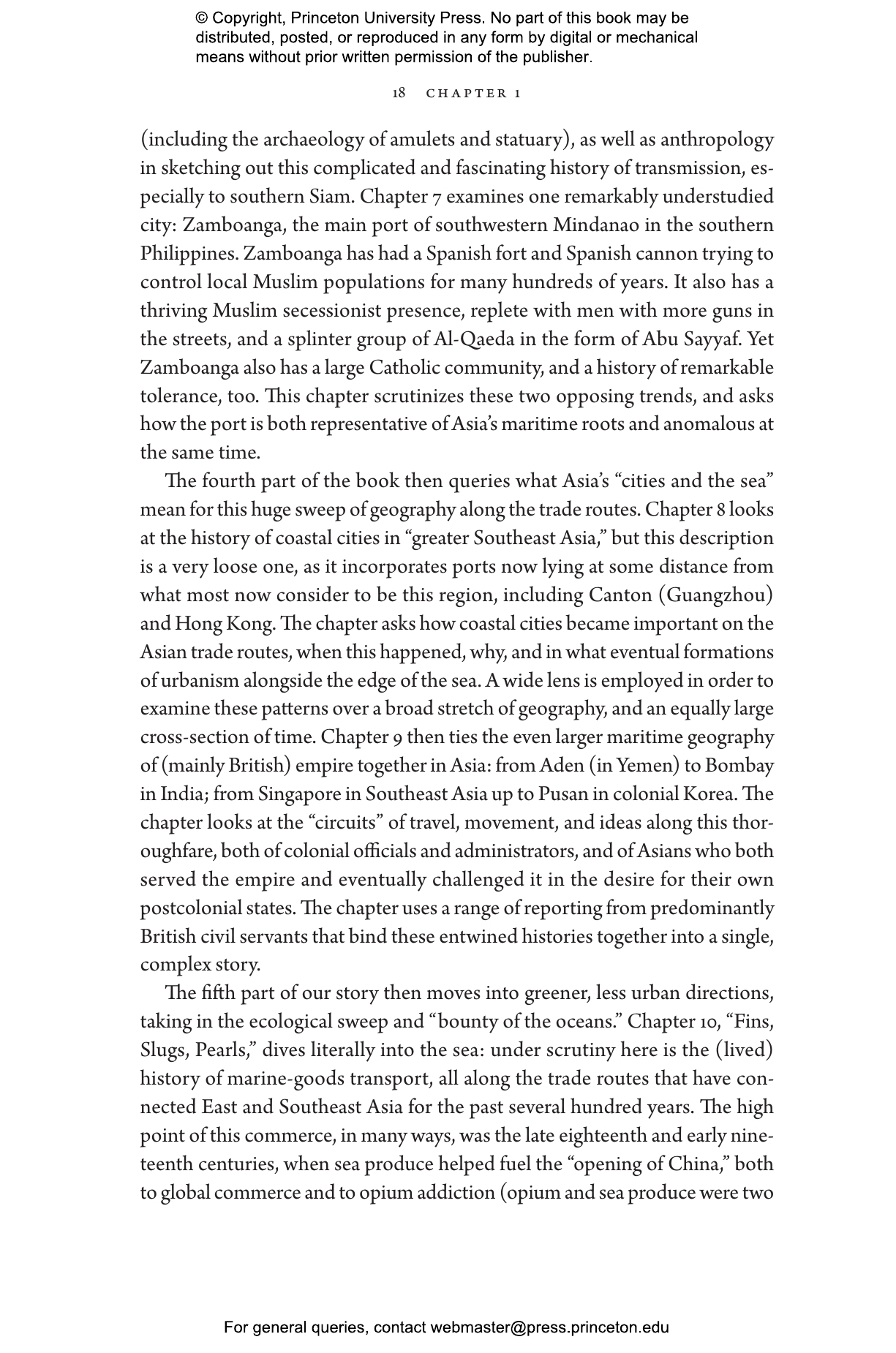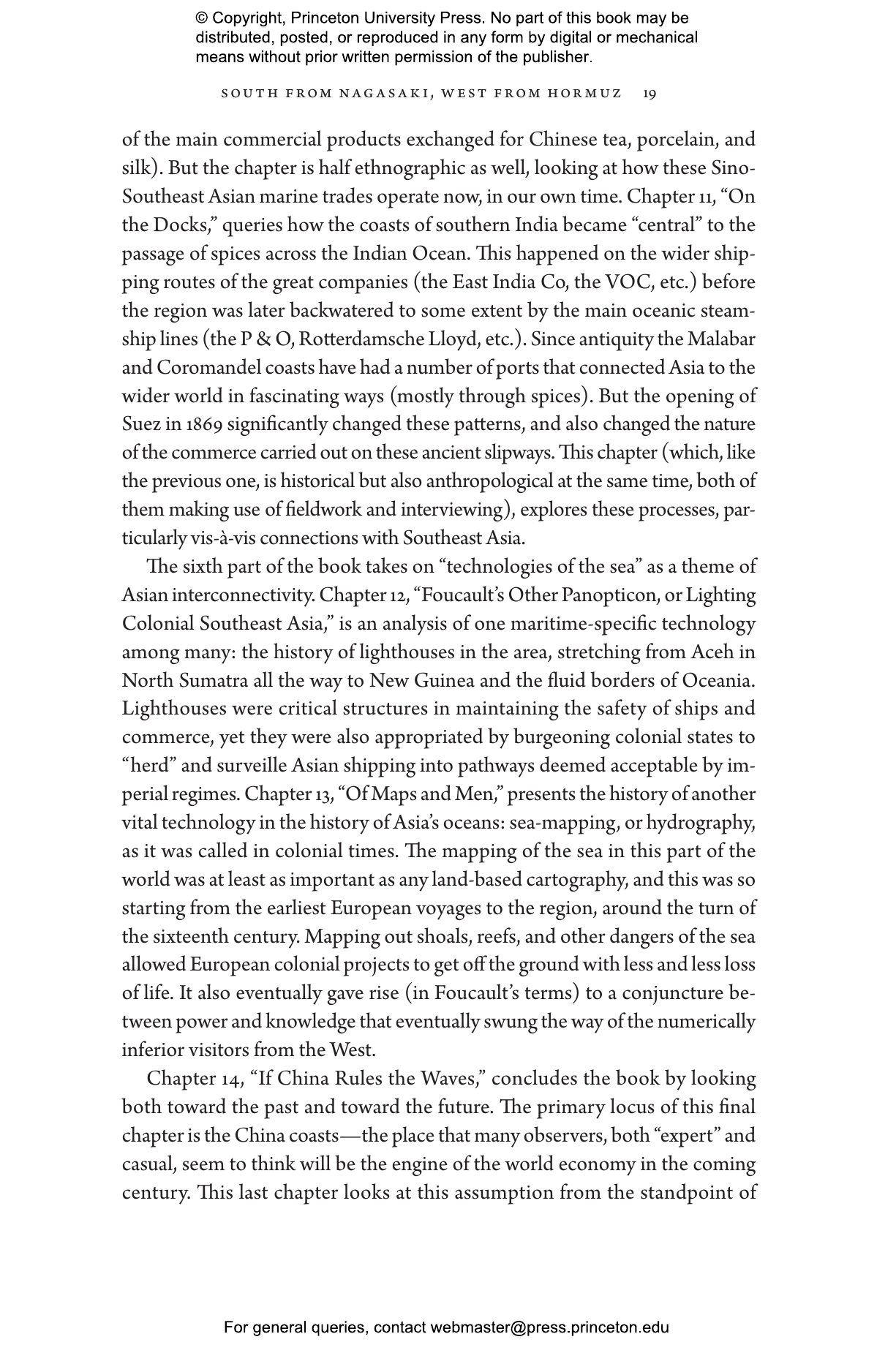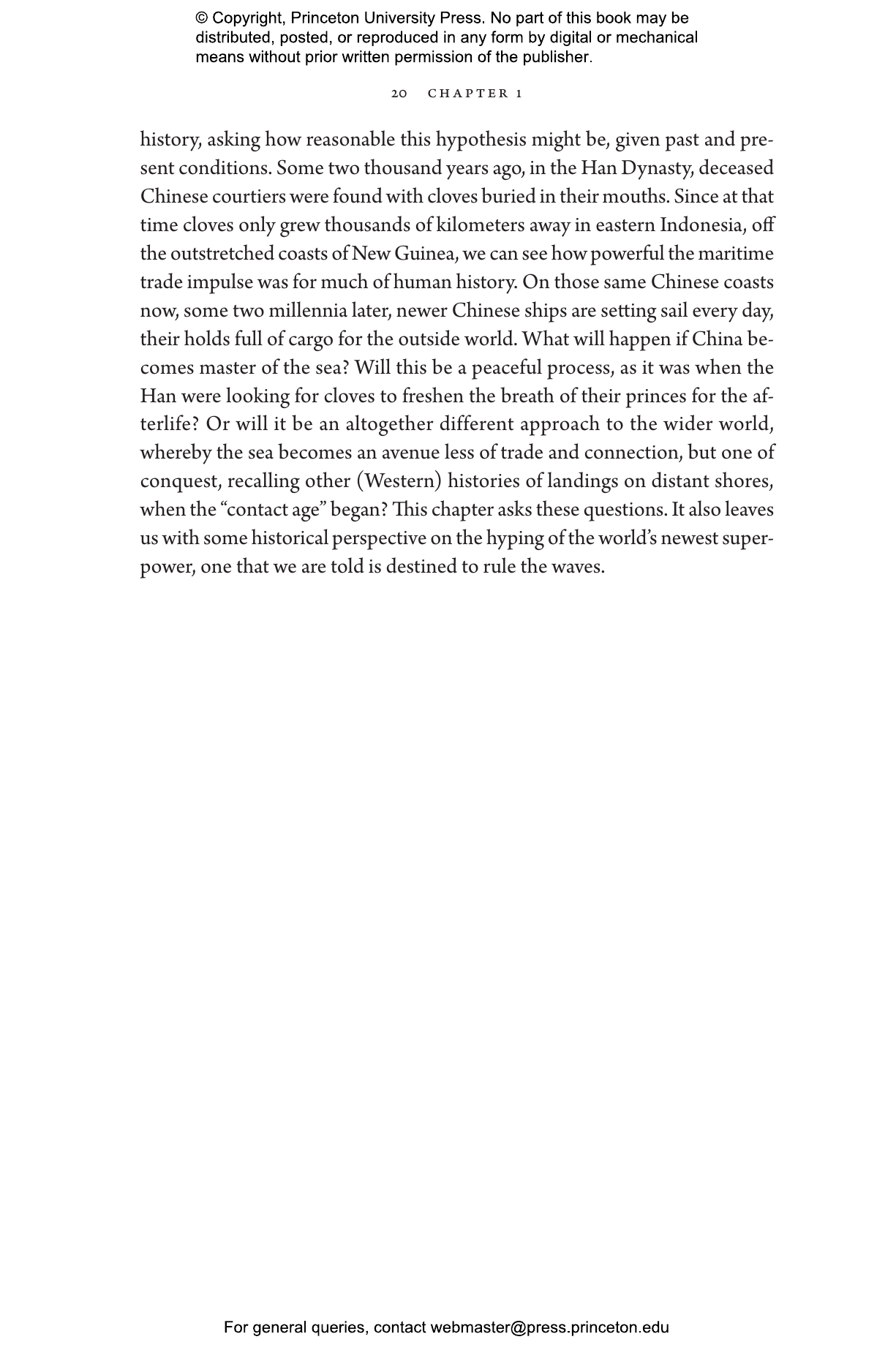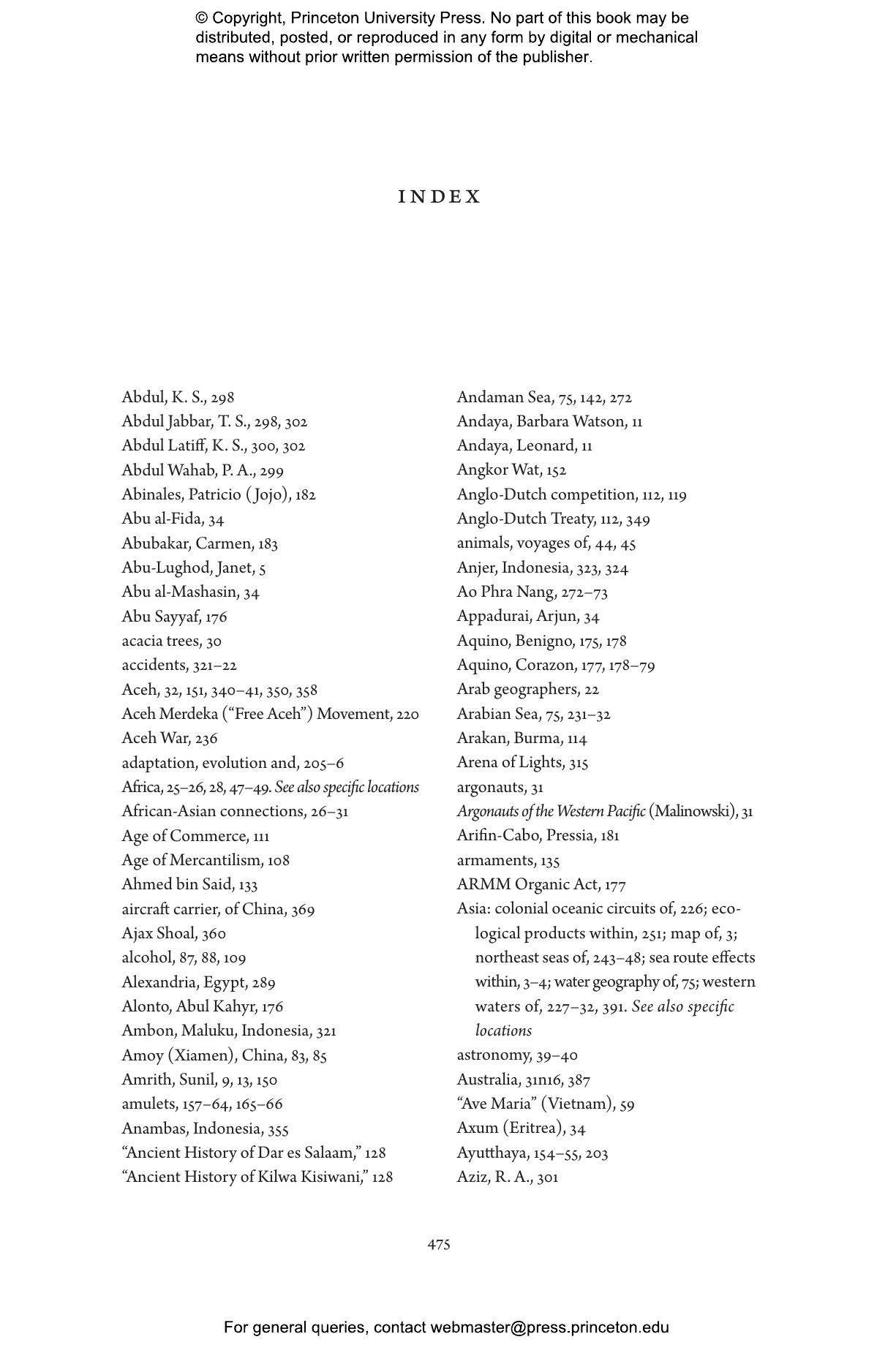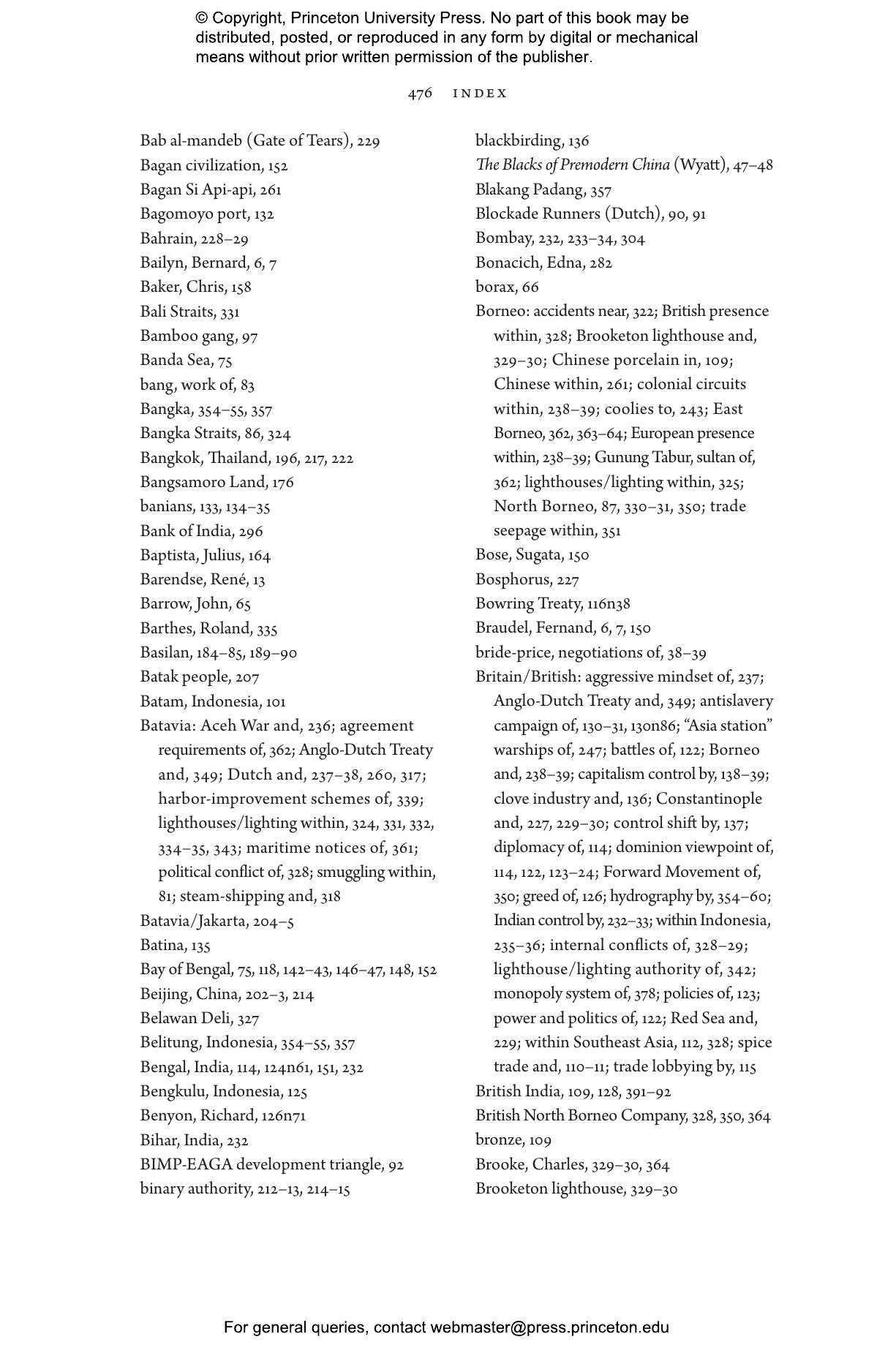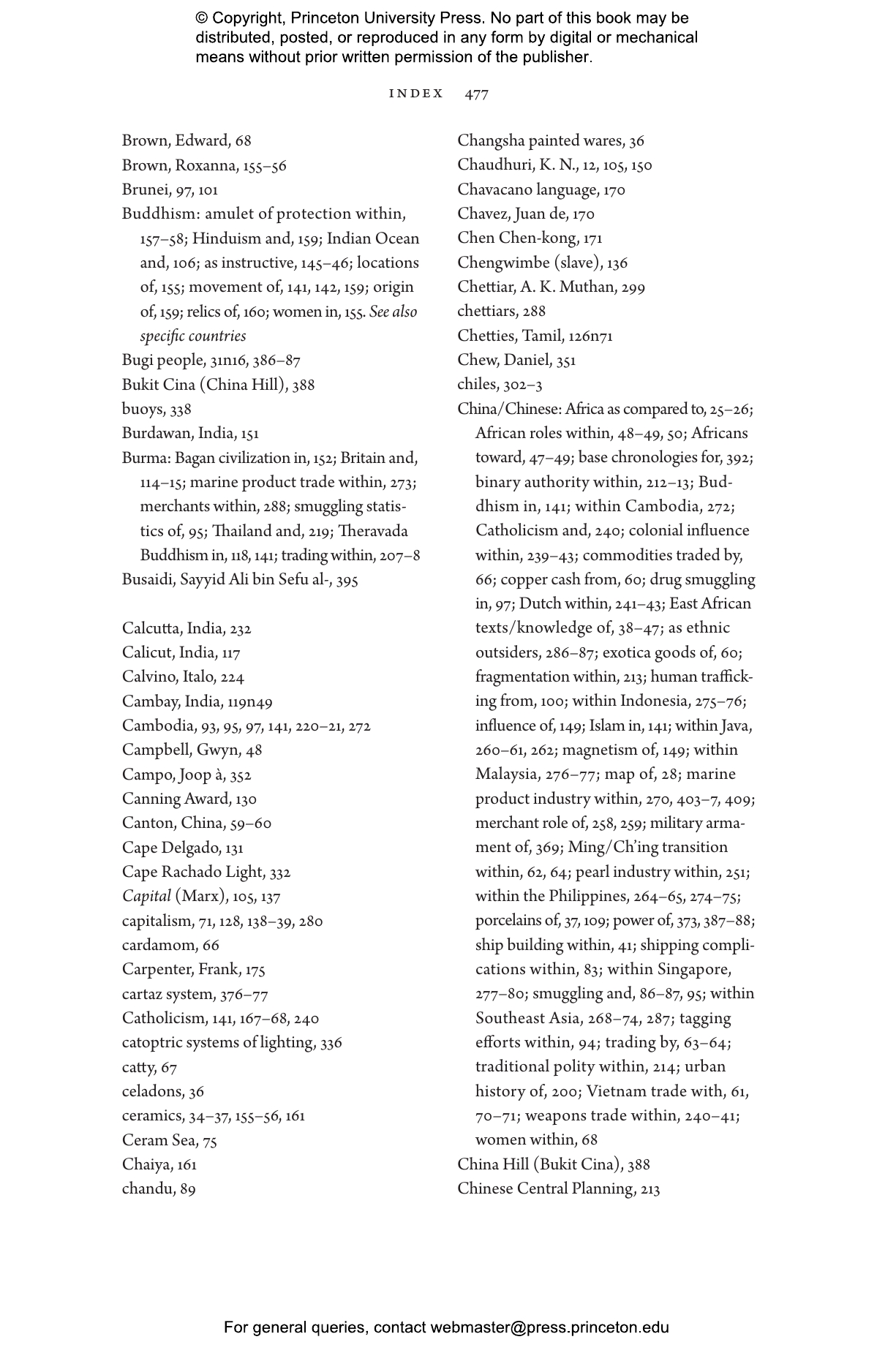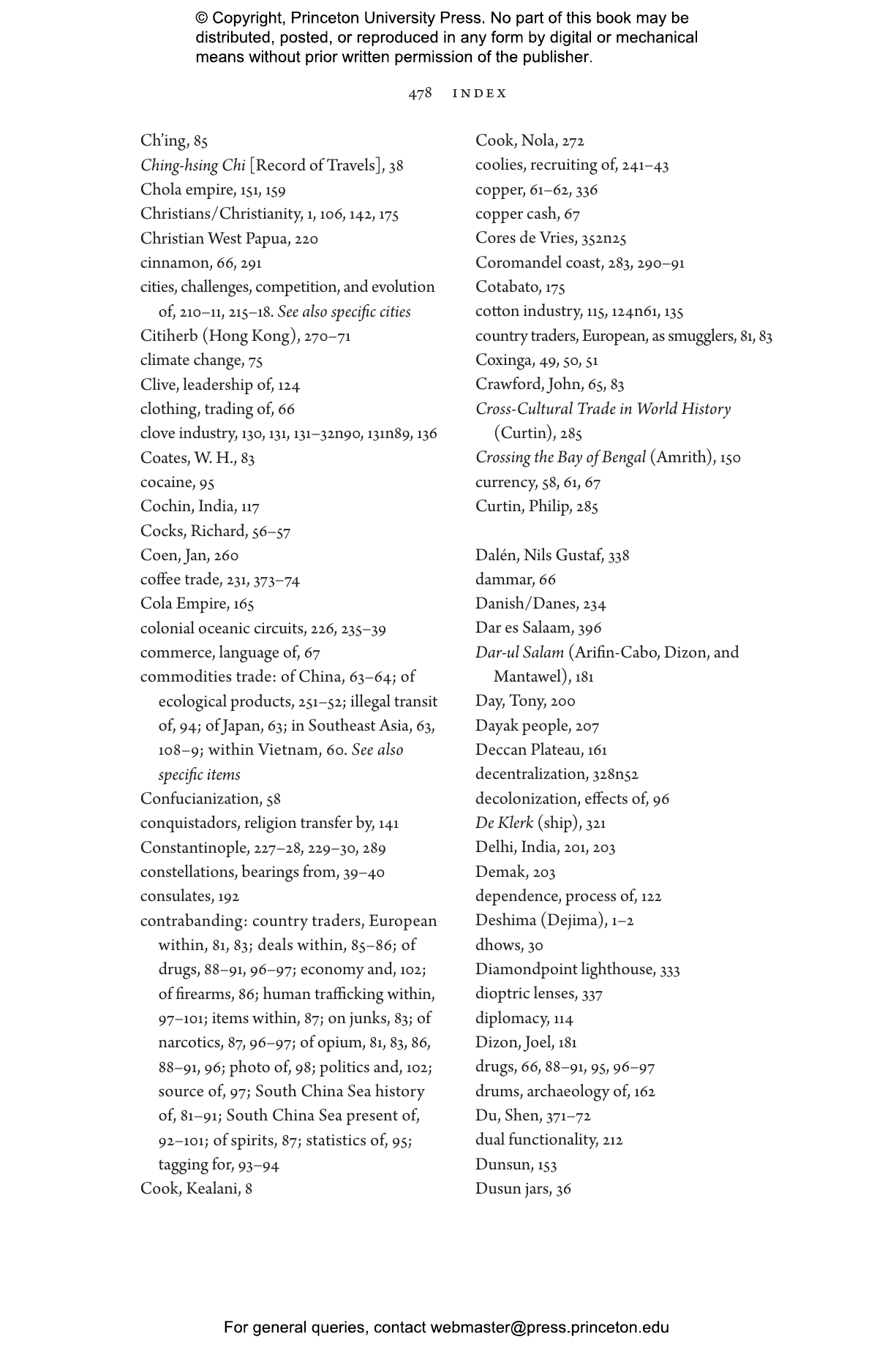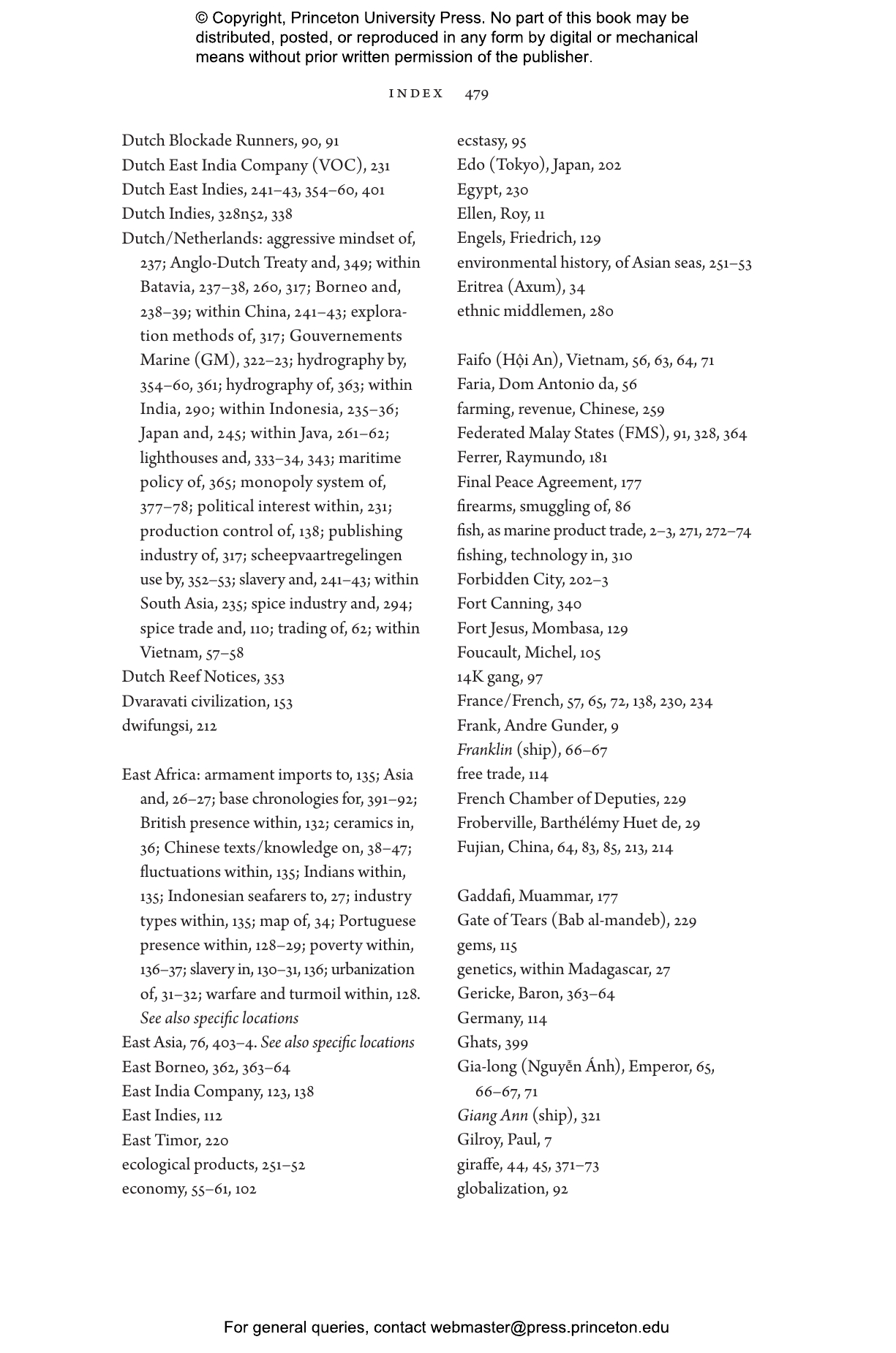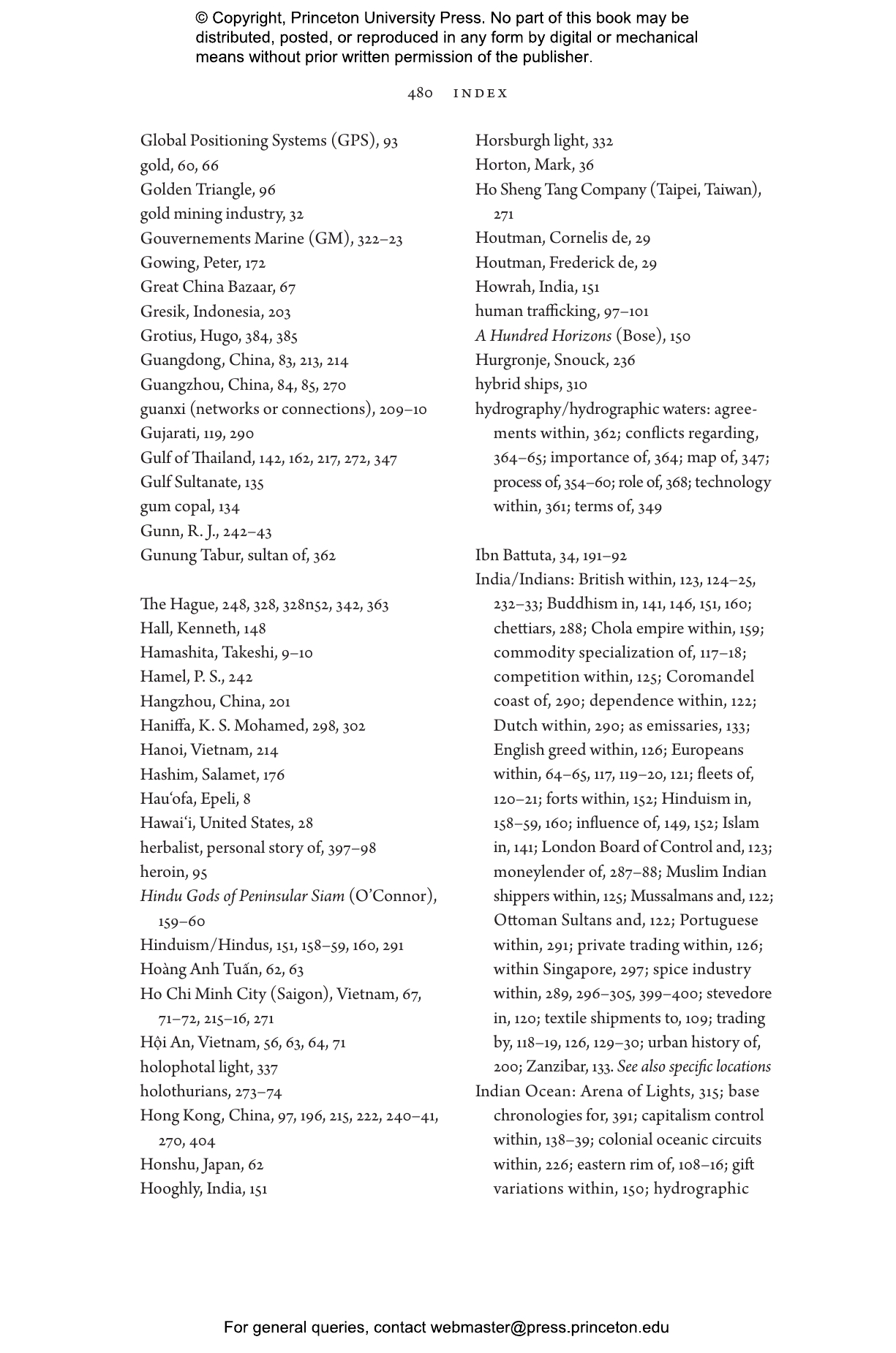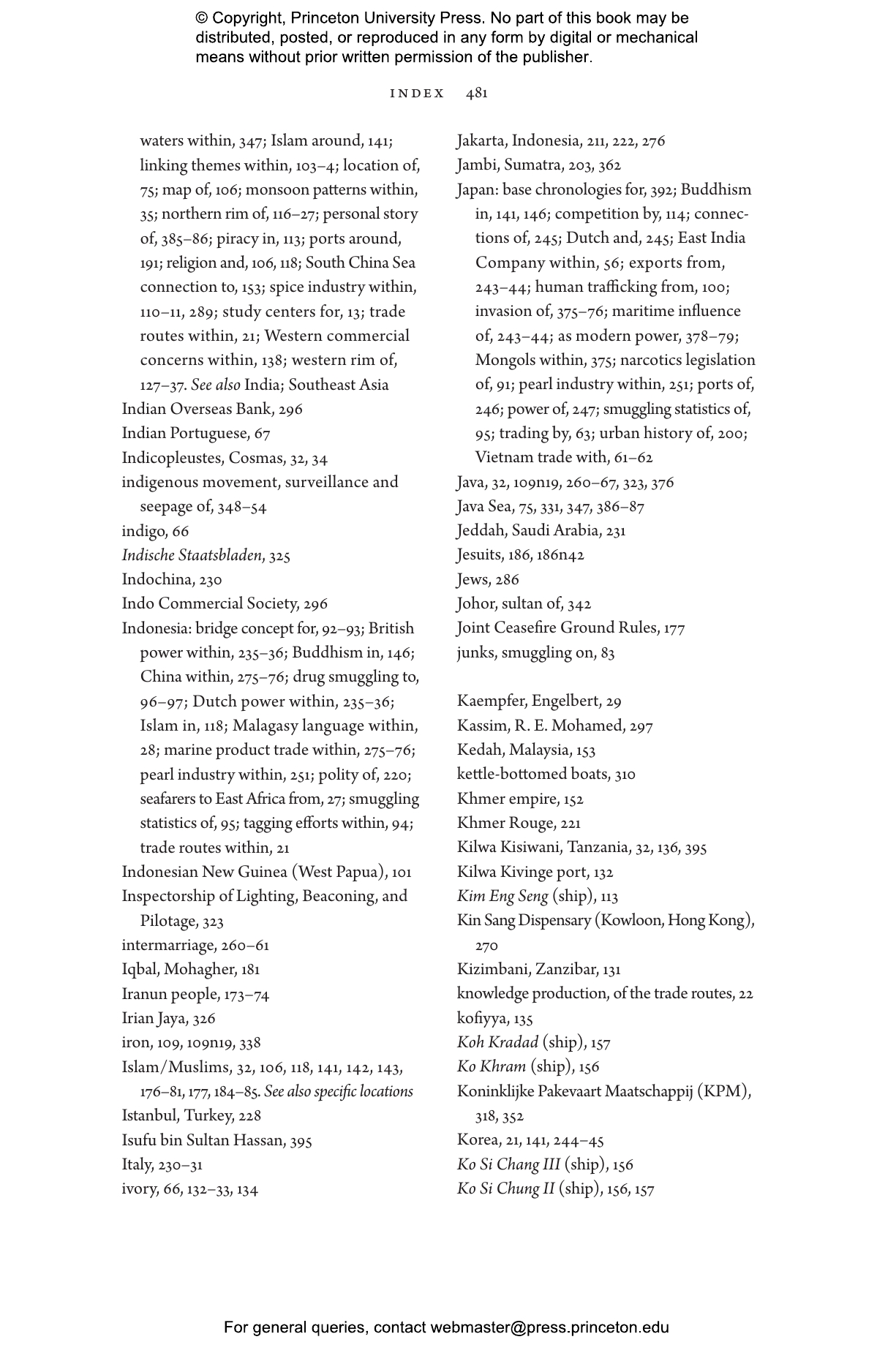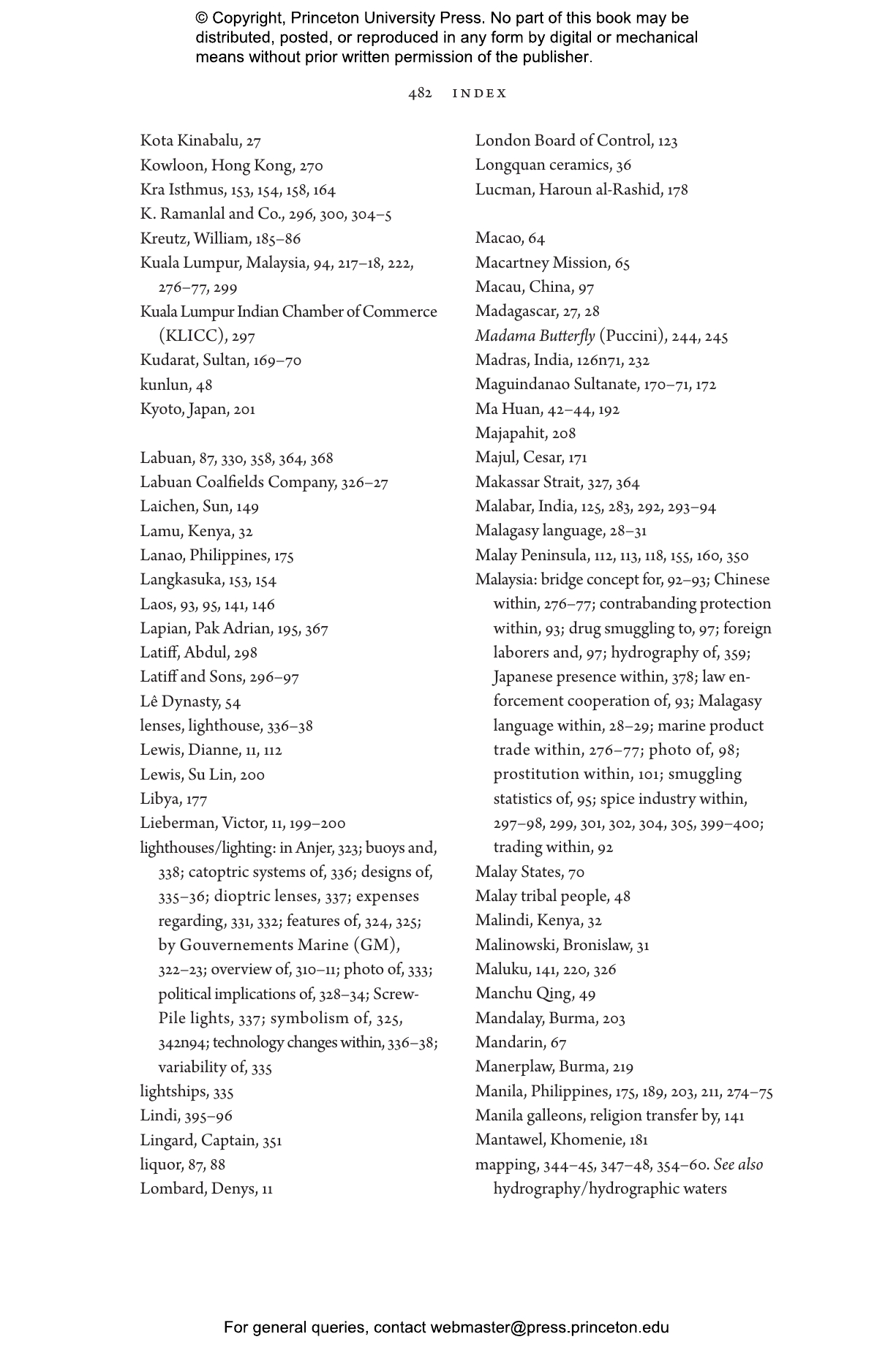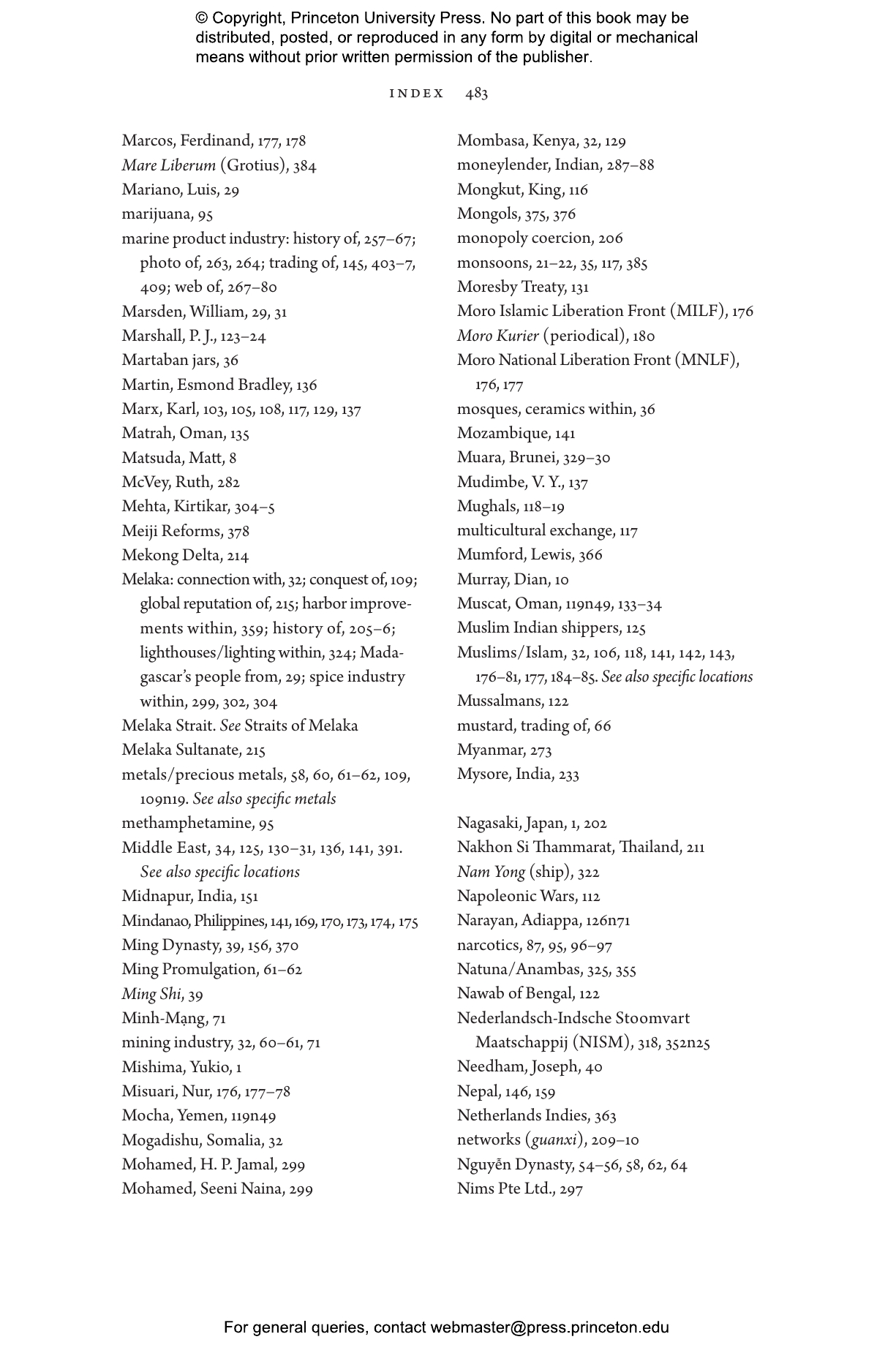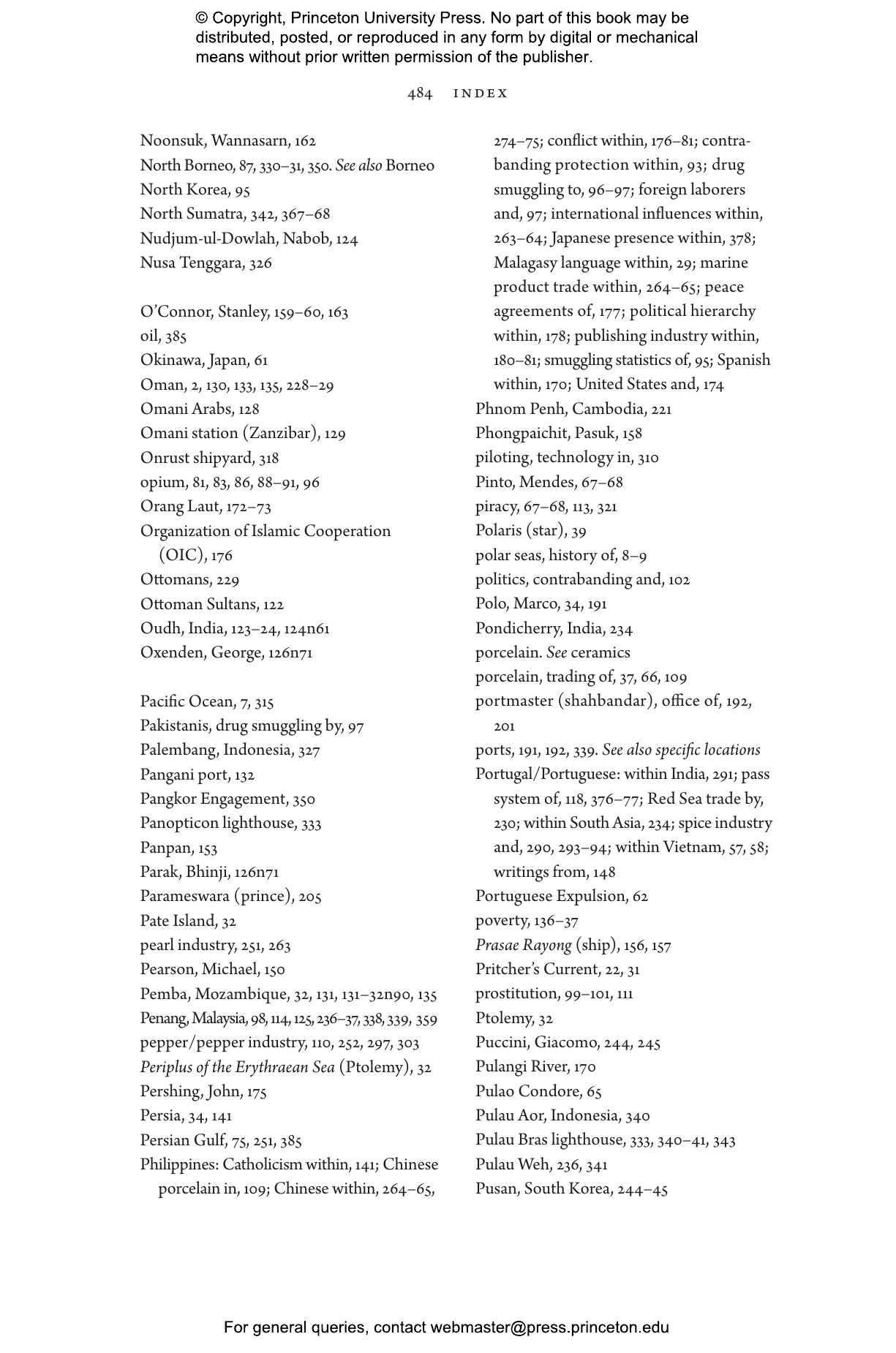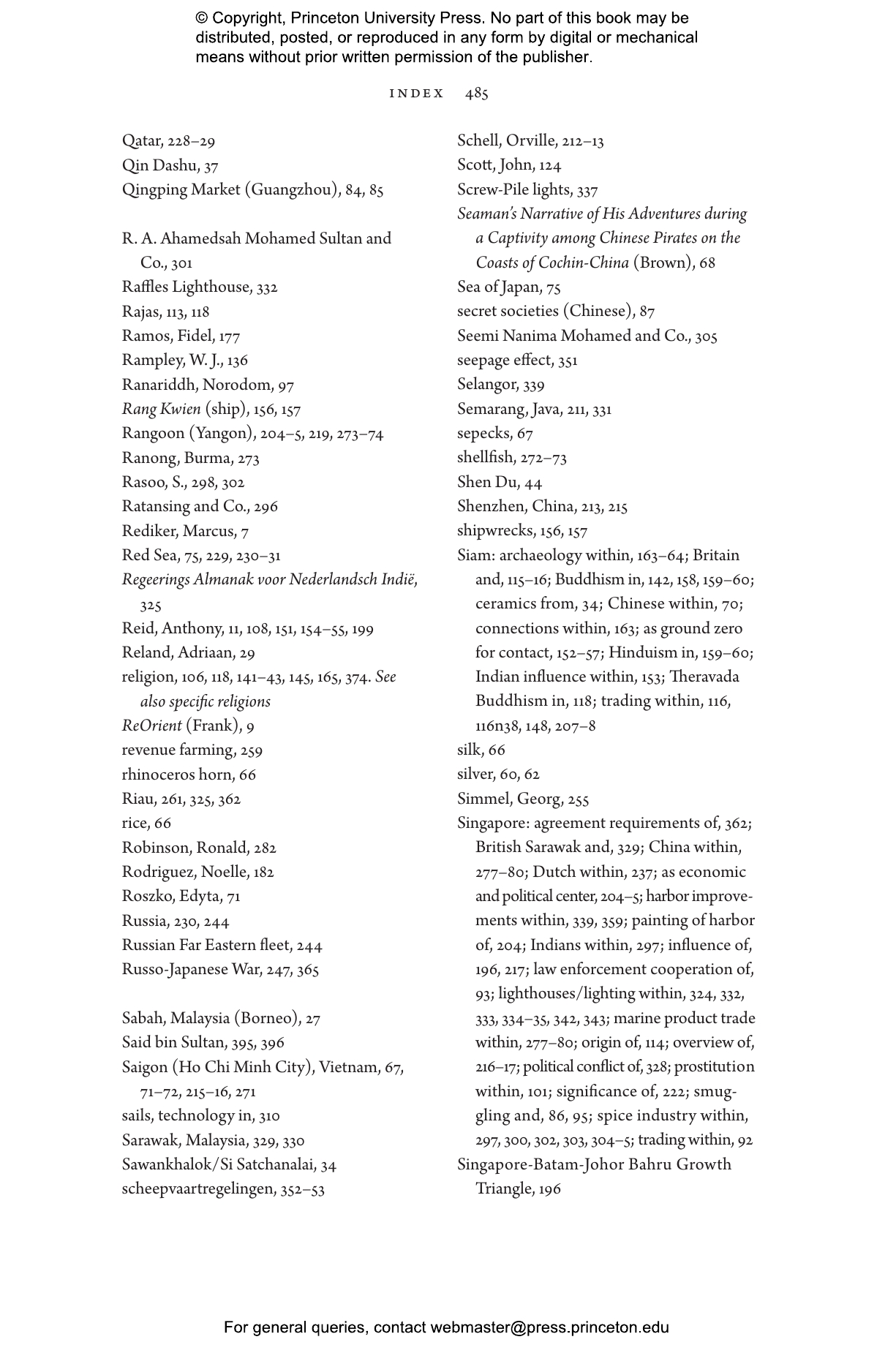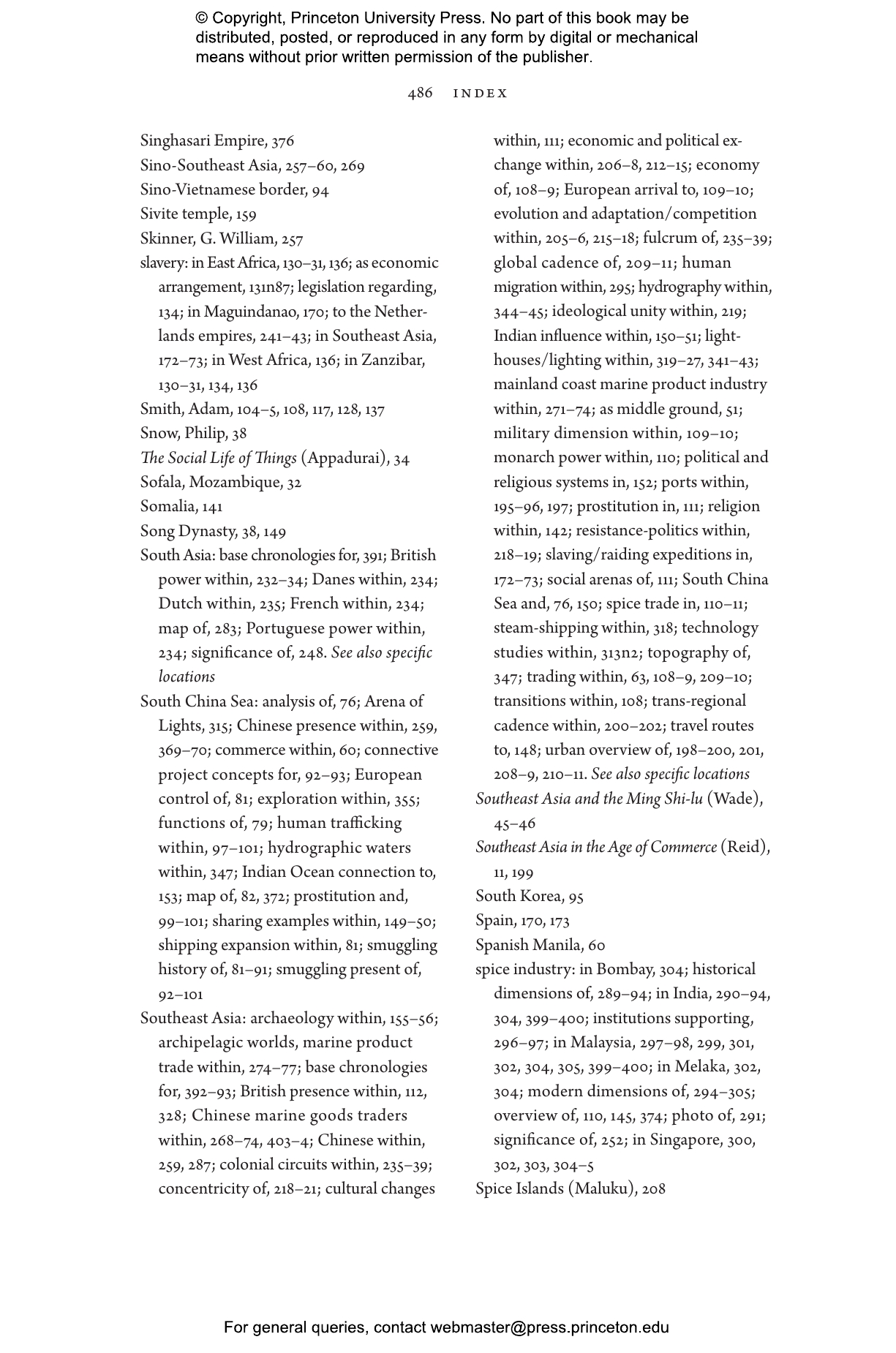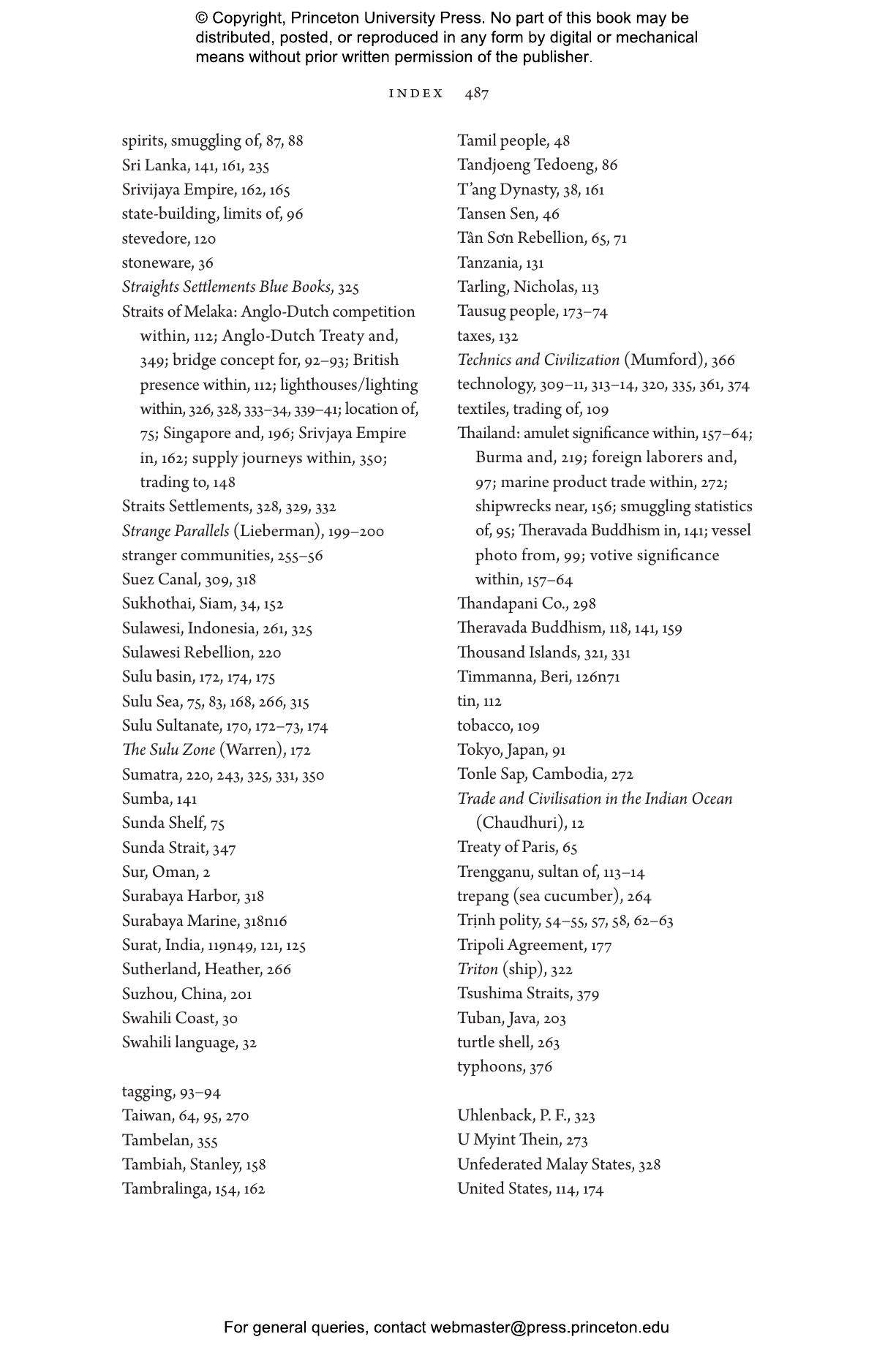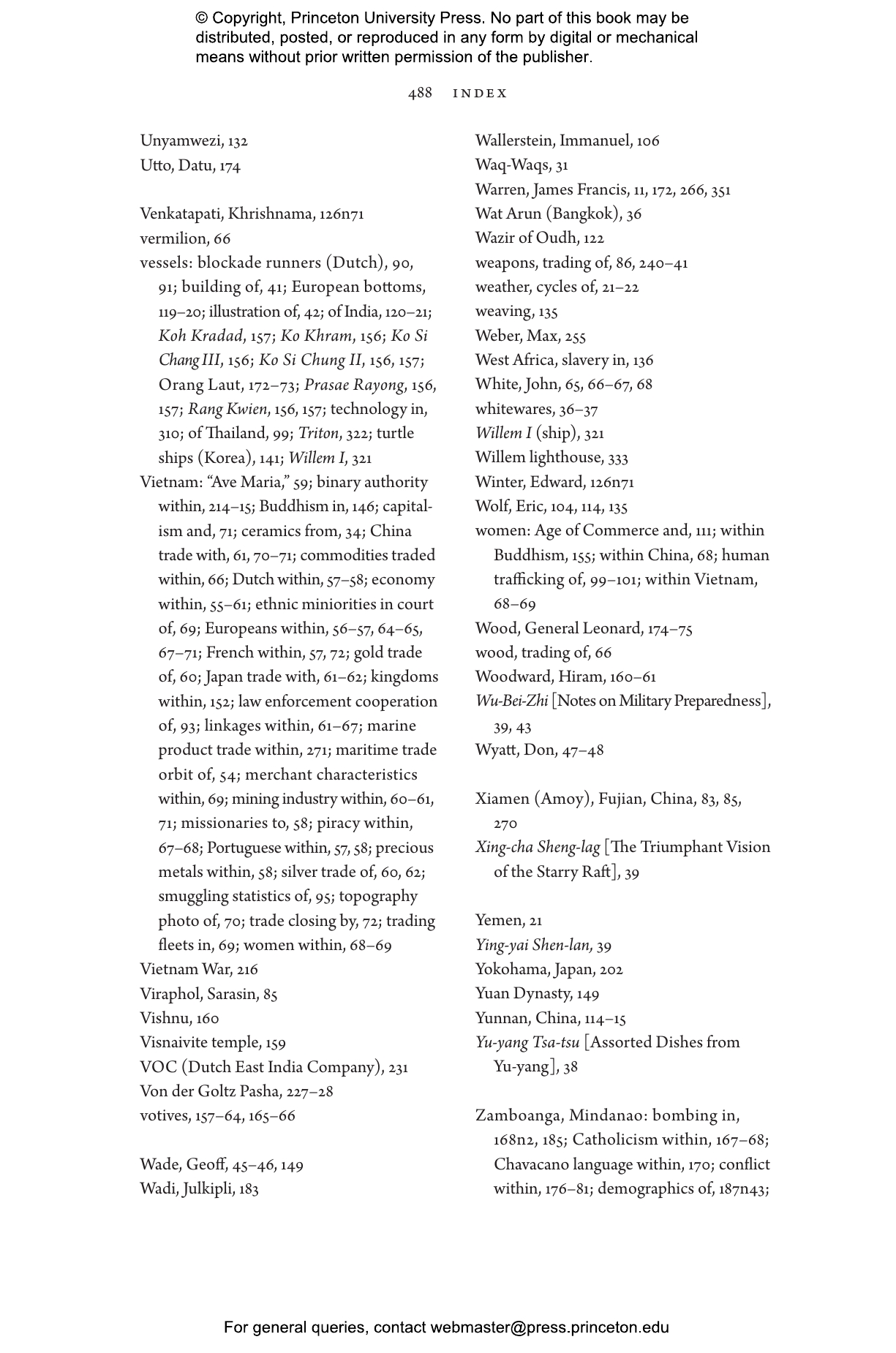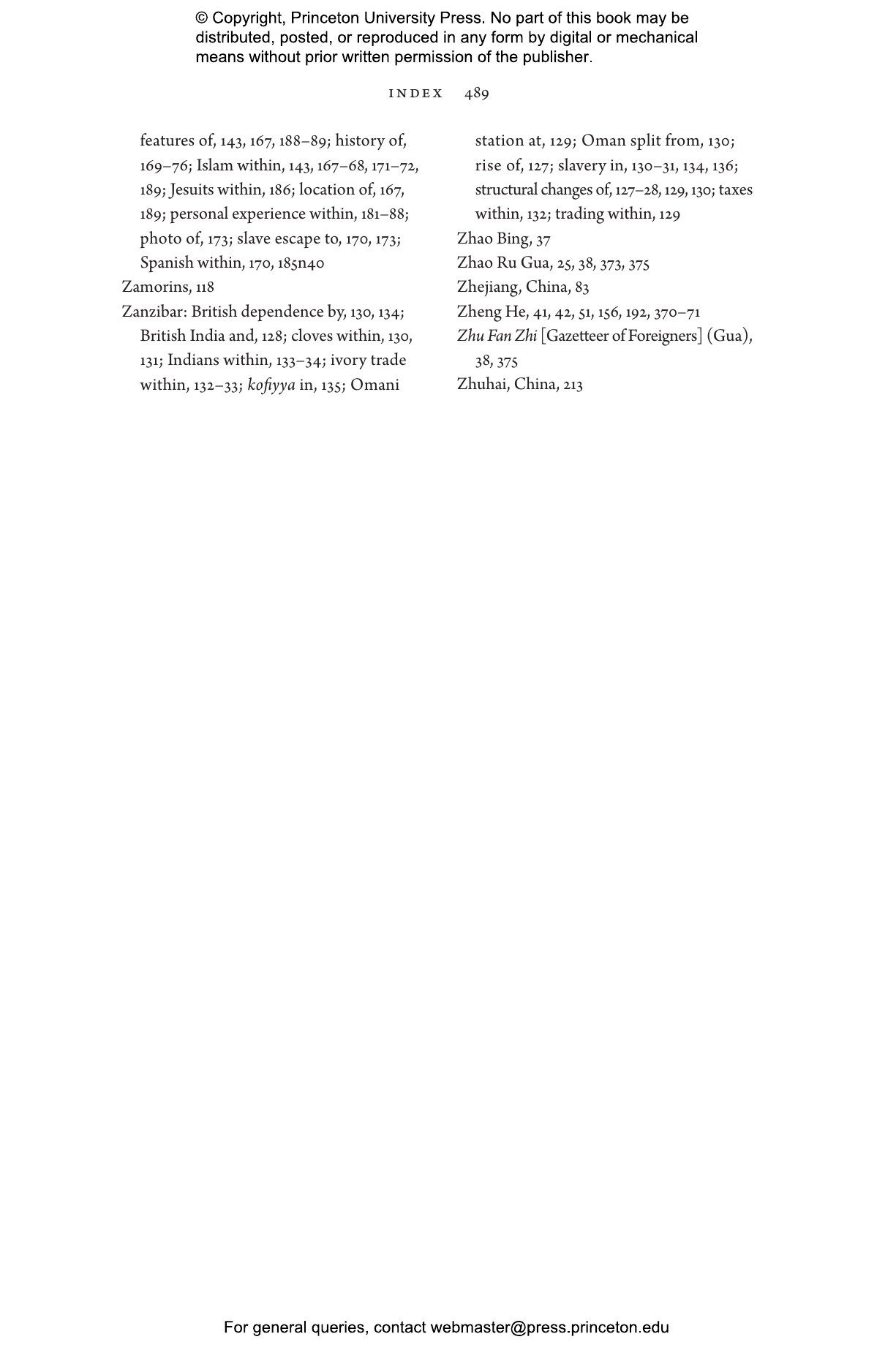In the centuries leading up to our own, the volume of traffic across Asian sea routes—an area stretching from East Africa and the Middle East to Japan—grew dramatically, eventually making them the busiest in the world. The result was a massive circulation of people, commodities, religion, culture, technology, and ideas. In this book, Eric Tagliacozzo chronicles how the seas and oceans of Asia have shaped the history of the largest continent for the past half millennium, leaving an indelible mark on the modern world in the process.
Paying special attention to migration, trade, the environment, and cities, In Asian Waters examines the long history of contact between China and East Africa, the spread of Hinduism and Buddhism across the Bay of Bengal, and the intertwined histories of Islam and Christianity in the Philippines. The book illustrates how India became central to the spice trade, how the Indian Ocean became a “British lake” between the seventeenth and nineteenth centuries, and how lighthouses and sea mapping played important roles in imperialism. The volume ends by asking what may happen if China comes to rule the waves of Asia, as Britain once did.
A novel account showing how Asian history can be seen as a whole when seen from the water, In Asian Waters presents a voyage into a past that is still alive in the present.
"A powerful history of rupture and change; of technologies no longer in use, once-priceless goods that have lost their value, prominent port cities that have become provincial backwaters, and social worlds that have altered beyond recognition. . . . In Asian Waters offers fascinating glimpses of a world at once strangely familiar and deeply foreign."—Yorim Spoelder, Asian Review of Books
"Fascinating. . . . This is a daring and thought-provoking book."—Jonas Rüegg, H-Net Reviews
"A tour de force that offers a broad historical and geographic perspective of oceanic interlinkages from Japan to East Africa that evolved long before the arrival of European powers to the macro-region in the sixteenth century."—Cuauhtemoc Villamar, Journal of World History
"Tagliacozzo suggests that to appreciate this vast maritime world, we must do away with the blinders that fossilized disciplines have imposed on us. Instead of national geobodies, we should focus on the oceans, where there is that timeless low of commodities, ideas and peoples that national borders cannot stop. . . . This is an excellent, extraordinarily superb, and fun book to read."—Patricio Abinales, Southeast Asian Studies
"Eric Tagliacozzo’s latest ambitious work provides an eclectic history of maritime trade and interconnectivities across a vast space extending from the Persian Gulf to the seas around Japan. Though the Indian Ocean and South China Sea garner the greatest attention in this enjoyable work, the sweeping and engaging kaleidoscope of topics covered in Tagliacozzo’s work offers much to historians of the Pacific."—Steven Ivings, Pacific Historical Review
"A major addition to the corpus of maritime and oceanic history and thus to global history. . . . Tagliacozzo’s study is exhaustively researched, creatively analyzed, elegantly presented, and makes a major contribution to maritime and global history. It should become a landmark (a lighthouse?) in maritime Asian scholarship."—Stephen Morillo, Asian Review of World Histories
"In Asian Waters does not rewrite Indian Ocean history. . . but it is undoubtedly the best stock-taking that we have of the field, in all of its historical, thematic and methodological diversity."—Fahad Ahmad Bishara, Journal of International Maritime History
"Tagliacozzo's view of the life of Asia's maritime pathways throughout the last five centuries is unexcelled. Although much has been written about this subject over the years, this volume should find a prominent place within the scholarship on Asia and of oceanic worlds everywhere."—Thomas Metcalf, Journal of Interdisciplinary History
"[In Asian Waters] draws from an immense and multilingual array of primary sources, both archival and ethnographic, and secondary literature, which is carefully arranged to deliver a multi-faceted portrait of the long-term history of these waters."—Marco Zappa, International Quarterly for Asian Studies
"Tagliacozzo's artful balancing of numerous languages, methodologies and sources is truly impressive."—Markus Vink, Journal of Modern History
“Drawing on years of travel, many archives, and countless dockside conversations, Eric Tagliacozzo’s masterpiece shows how the connected past of maritime Asia has shaped our world. This is an epic yet intimate history of Asia’s seas: alive with the drama of port cities, and told with grace and empathy by a natural storyteller.”—Sunil Amrith, author of Unruly Waters: How Rains, Rivers, Coasts, and Seas Have Shaped Asia’s History
“Skillfully navigating the overlapping themes of environment and religion, imperial power and technology, and urbanism and trade, Eric Tagliacozzo has written a magnificent oceanic history of a continent. In Asian Waters takes its readers on an adventurous voyage of discovery, tracing historical connections from the Arabian Sea through the Bay of Bengal to the South China Sea.”—Sugata Bose, author of A Hundred Horizons: The Indian Ocean in the Age of Global Empire
“In Asian Waters is a deeply sourced, eloquently executed, globe-spanning history from the eastern coast of Africa and the Red Sea, across the Indian Ocean, to the South China and Sulu seas and into the Pacific. Eric Tagliacozzo journeys along religious circuits through ancient and modern port cities, traverses the environments of sea cucumbers and spices, and debates with locals and scholars about politics, pirates, trading firms, hydrographic stations, lighthouses, amulets, and aircraft carriers to offer a true epic of Asian waters across centuries.”—Matt K. Matsuda, author of Pacific Worlds: A History of Seas, Peoples, and Cultures
“This sweeping account will bury once and for all the Orientalist trope of Asia as a continent of agrarian empires. Through a vivid portrait spanning the past half millennium, Eric Tagliacozzo makes the case for maritime Asia as the birthplace of modernity and its discontents. In Asian Waters is an engrossing and thought-provoking read.”—Francesca Trivellato, author of The Promise and Peril of Credit: What a Forgotten Legend about Jews and Finance Tells Us about the Making of European Commercial Society
“By turns zooming in on a given coast or port and pulling back for panoramic views of empire, religion, and exchange, In Asian Waters is a lively, kaleidoscopic introduction to a great arc of maritime history.”—Kären Wigen, coauthor of The Myth of Continents: A Critique of Metageography
